#one punch man fubuki
Text
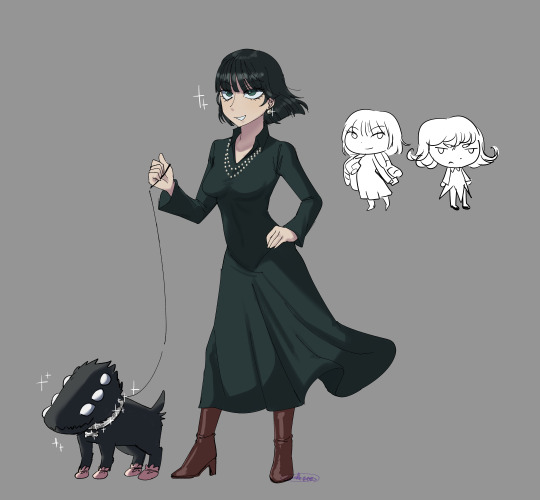
fubuki will be like those chicks with dog on their bags

87 notes
·
View notes
Text


#dont ask#i have no explanation to give#one punch man fake twitter#one punch man twitter#opm fake twitter#opm twitter#fake tweets#fake twitter#one punch man#opm#saitama#genos#genosai#saigenos#fubuki#opm fubuki#one punch man fubuki
552 notes
·
View notes
Text

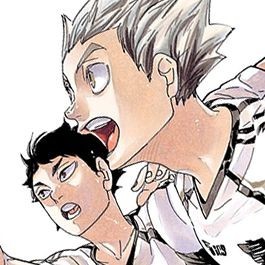
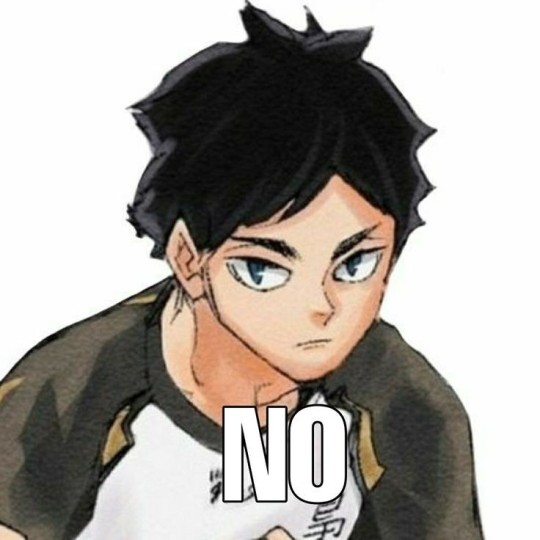




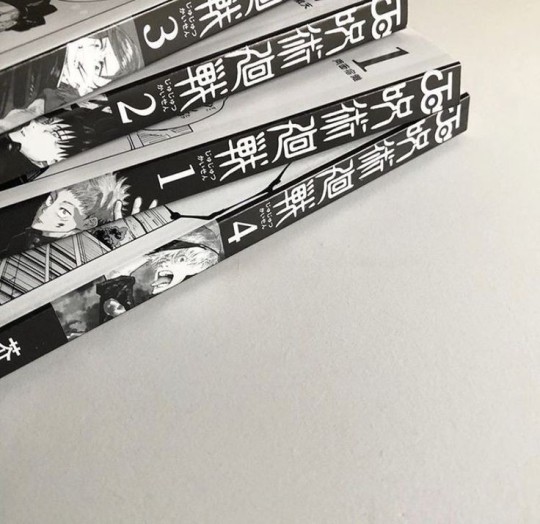

crossover
#moodboard#kpop moodboard#random layouts#nct icons#anime moodboard#bokuto koutarou#haikyuu!!#haikyuu moodboard#simple moodboard#anime / manga#manga moodboard#fubuki#one punch man fubuki#jaehyun#nct jaehyun#nct 127#haikyuu akaashi#akaashi keji#messy moodboard#alternative moodboard#random moodboard
341 notes
·
View notes
Text
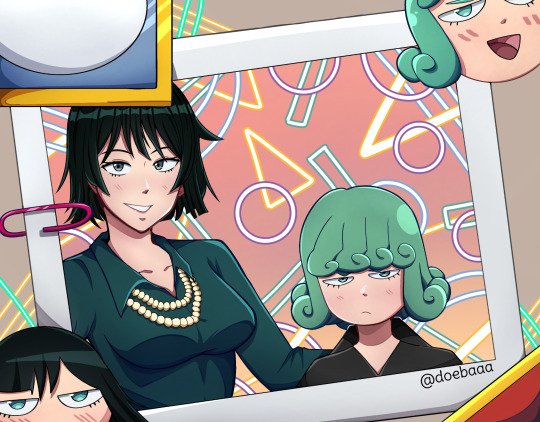
📸📸📸
#one punch man#fanart#opm fanart#tatsumaki#opm fubuki#opm tatsumaki#fubuki#one punch man fubuki#one punch man fanart#hellish blizzard#tornado of terror
219 notes
·
View notes
Text


редрав прошлогодней картинки на 8 марта
10 notes
·
View notes
Text
꒰ FUBUK1 L4Y0UTS ! ✩彡




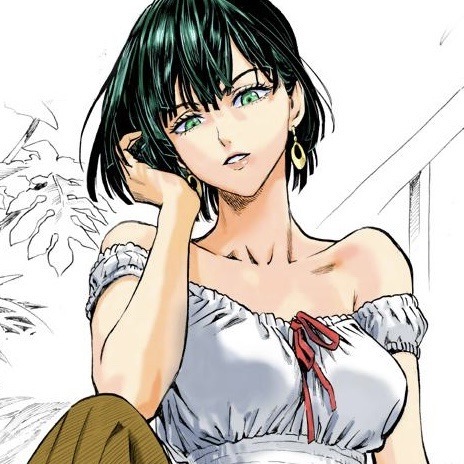

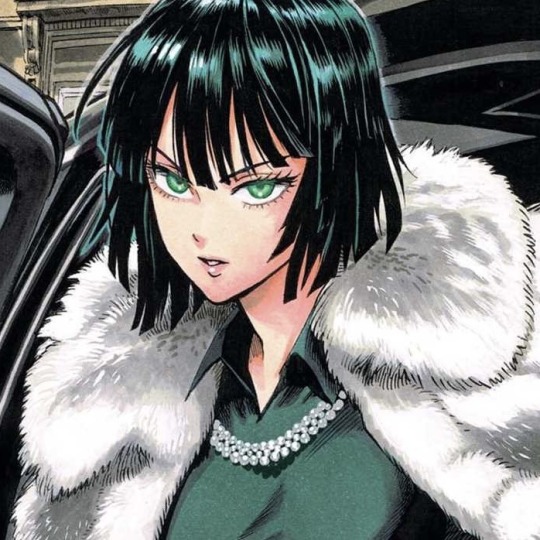

{☆} 🌿📓🐊⋆。˚ ⋆
## like / reblog if you use / save !¡
#anime layouts#tumblr layouts#twt layouts#anime#messy anime icons#messy layouts#fubuki#one punch man#opm#one punch man fubuki#hellish blizzard#blizzard of hell#fubuki layouts#fubuki icons#one punch man layouts#one punch man icons#opm layouts#opm icons#messy anime layouts#one punch man anime#opm anime
156 notes
·
View notes
Text
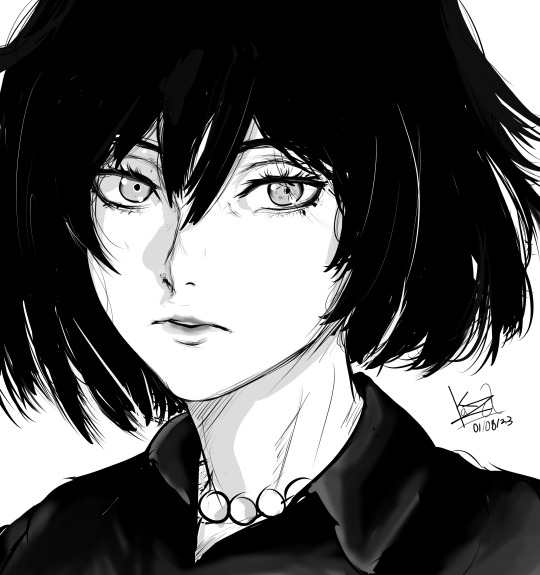
Fubuki
#art#illustration#sketch#doodle#character#digitalart#artwork#arte#fubuki one punch man#one punch man fanart#onepunchman#one punch man#one punch man fubuki
12 notes
·
View notes
Text
I would cook an Esper’s brain inside of its skull and scoop it out with a grapefruit spoon
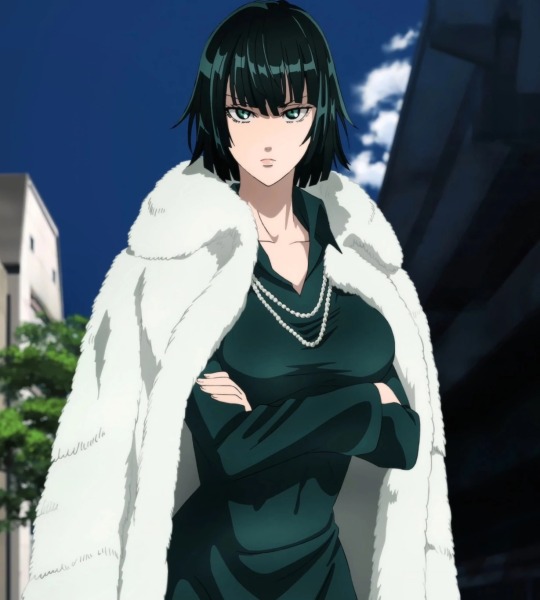
#eating animals#i want to eat mythical animals#cannibalism tw#tw cannibalism#esper#esp#extra sensory powers#Opm#one punch man#fubuki#fubuki opm#opm fubuki#one punch man fubuki#fubuki one punch man#fubuki one punch#one punch fubuki#one punch#blizzard of hell#miss blizzard#tatsumaki#one punch man Tatsumaki#tatsumaki one punch man#one punch Tatsumaki#Tatsumaki one punch#tornado of terror#psychic
3 notes
·
View notes
Note
Fubuki layouts please!! 💕
here it goes!
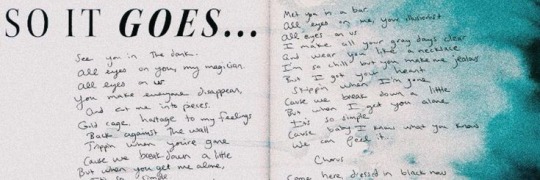



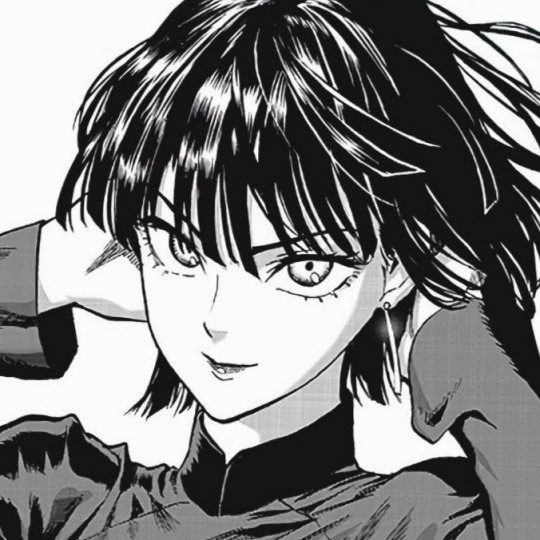
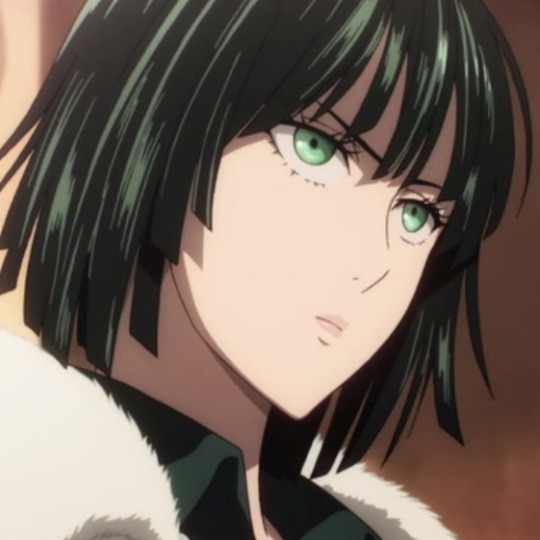




thanks for the request!
#anime icons#layouts#anime layouts#icons#anime / manga#headers#aesthetic#brown headers#blue headers#green headers#cyan headers#b&w headers#fubuki#one punch man#opm layouts#one punch man fubuki#answered ask
94 notes
·
View notes
Text
A “B-Class” Underdog in an “S-Class” Crisis.
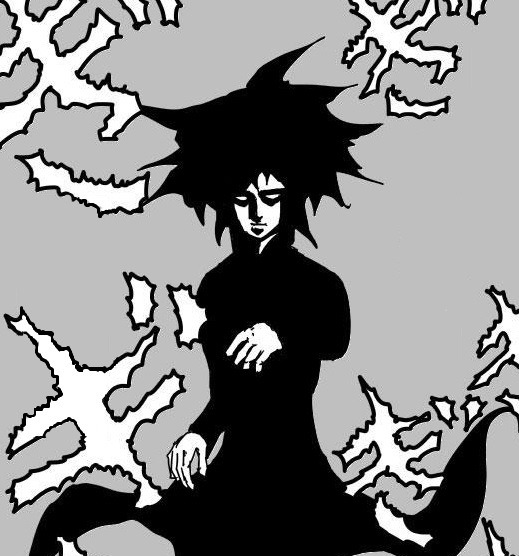
Fubuki’s role in the webcomic Monster Association arc holds a special place for me out of all the things I love about the series, so here I want to delve into it. I’ll organize the content of the post as follows: first, a quick look at Fubuki’s introduction arc and what it establishes about the character; then, what role is assigned to the esper during the Monster Association, how she is portrayed during those events, and in what way this relates to the overall themes of the arc and the rest of the cast; finally, what outcome the arc holds for Fubuki and where it leaves her at the beginning of the next. Webcomic spoilers.
Disclaimer: my opinion is based on the story so far and future webcomic updates can always make this post obsolete/flat-out wrong and my interpretation of the characters completely off the mark.
EDIT 04/06/2024: I decided to change the opening image because I realized that the previous one from Chapter 74 was too low-res, so I opted to change it for the first panel from Chapter 77 (I removed the text-boxes and then “redrawned” the onomatopoeias; I apologize for the end result, but this is the best I can do).
Before jumping into the main topic of this post, it is important to remember what precedes the war between heroes and monsters. After the Alien Invasion arc and before the clash between the Hero Aassociation and Monster Association, in fact, ONE placed three mini-arcs introducing a trifecta of characters (Chapters 42-50): King, Garou and Fubuki. That isn’t a casual choice. The mini-arcs are inextricably connected to the MA, providing the required groundwork for what follows and forming one cohesive and unified narrative structure resulting in the Garou saga as a whole, whose shared themes and plot threads, introduced in Chapters 42-56 (the mini-arcs and Garou’s Hero Hunt), carry over to the events of Z-City (Chapters 57-94).
Garou's debut monologue/flashback (Chapter 46: 1, 2 and 3), in particular, sets the stage and introduces all the main leitmotifs (i.e., “hero versus monster”) and narrative trails that will be explored in more depth over the course of what follows. For example, “unfairness” (especially, but not only, as in social injustice and in relation to mob mentality), which is explicitly referenced here and is a very central theme of the MA arc, is also present, in one form or another, in every single one of these characters’s storylines and their introductions:
King is the hero Saitama’s heroics are misattributed to, while the real deal has to rise from the bottom of the rankings, accused by the public of being a fraud and a suspicious troublemaker. At the same time, King ended up trapped in a misunderstanding he didn’t cause, and, to make things worse, he keeps finding himself in a situation worse than the previous one, with monsters stalking him at every turn;
for Garou, his battle against “unfairness”, referenced in his introduction, is the driving force of his character arc and his crusade against the status quo;
Fubuki, whose powers destined her to greatness but lived under the shadow of her sister, an anomaly of the esper world (Chapter 50).
Even outside of that, there are other recurring elements that encompass all the characters featured in this lengthy, multi-focal “prologue”. For example, King and Fubuki’s mini-arcs, aside from establishing the characters themselves, illustrate the flaws, the dysfunctional sides, and the shortcomings of the association our main characters work for. The Hero Association is a corrupt organization plagued by rookie crushing, rivalries and flawed and sometimes dangerous individuals - all things that, to a certain extent, justify Garou’s criticism of heroes and the society sustaining them. Additionally, and much like Saitama, both King and Fubuki are living proof (in their own ways) of the unreliability of the HA’s ranking system as a way to gauge “strength” and the individual value of its heroes: if King was granted his placement in S-Class simply because of a massive misunderstanding, Fubuki deliberately chooses to stay way below her actual level, in a “safer” environment with no challenges.
As for their impact on the series, every one of the three newcomers will have a significant role to play in the all-out war over the ruins of Z-City:
Garou is the main character/antagonist of the saga, whose journey constitutes the backbone and the emotional core of the story;
King, an ordinary man that somehow ended up being considered the strongest hero of humanity, and Fubuki, the B-Class Rank 1 and the leader of one of the biggest factions of the HA while also an esper with a mysterious past that will resurface during the Z-City’s battle, are two significant additions to Saitama’s group and expand his circle of positive influence in the HA, bringing entirely new side-plots and endearing dynamics to the table.
After Fubuki is introduced and Garou hunts down Tank Top Master and co., the Monster Association makes its entrance by rescuing the Hero Hunter right when Fang, Bomb and Genos put him into a corner. This is what leads to the events taking place in Z-City. With the debut of a group of monsters capable of rivaling the S-Class Heroes and keeping them busy while Garou develops character and power-wise over the course of the crisis, the chessboard is complete and the spectacle can finally start.
Since Fubuki’s moments in the MA’s conflict are inextricably linked to her introduction (just like the MA arc itself can’t be separated from its “prologue”), I think it is necessary to take a (very) brief look at Fubuki’s first appearance in the series and the setup it provides to her involvement in the MA arc.
Fubuki’s Introduction Arc: Establishing an Underdog.
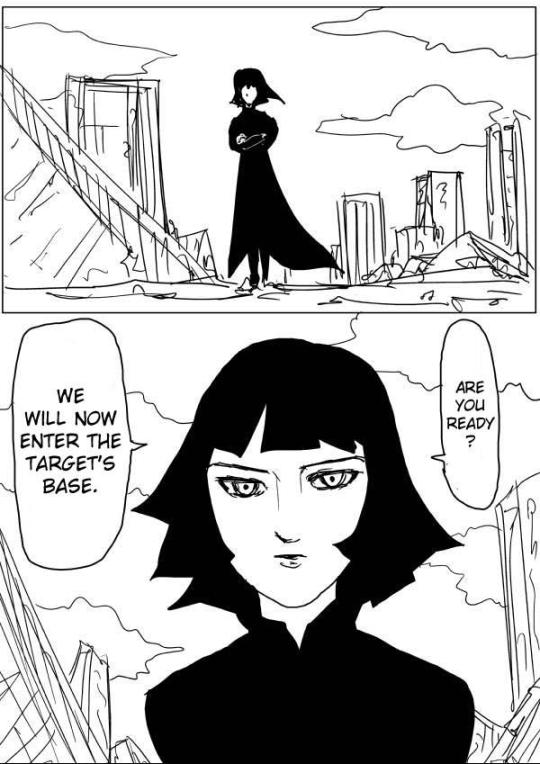
Before the encounter between Fubuki and Saitama, it’s worth pointing out the general perception people have of our protagonist and his “heroics” in the setting:
Chapter 19 (this and the pages that follow with Tank Top Tiger);
Chapter 22: 1, 2 and the last few pages from the same chapter;
the entirety of Chapter 23 (in particular the pages: 1, 2, 3, 4, 5 and 6);
Chapter 31, where Saitama pretends to be exploiting his colleagues’ heroism: 1, 2, 3.
The examples above paint Saitama, in the eyes of the public, as a troublemaking rookie hero rumored to steal other heroes’s achievements to rank up and profit from their efforts. Therefore, for Fubuki, who formed a group in order to maintain and secure her rank and whose permanence in B-Class is motivated by the unreachable first spots of the upper classes and their harsher competition, press like this is bad news. We do know, in fact, thanks to the dialogue in the apartment at the end of this arc (EDIT: I wrote a post about this scene), that Fubuki is well informed about other heroes and the rumors surrounding them (like the Three Disciples of Atomic Samurai and Amai Mask) and in Chapter 47 Fubuki herself states that she keeps an eye on the heroes who impress her.
With similar rumors circling around this hero skyrocketing through the ranks and the voices painting him as a troublemaker, Fubuki, worried for her status, decides to pay a visit to Saitama’s apartment and deal with this “threat”. This marks the starting point of her journey within the series.
Having met the man, the recruitment attempt goes south when Saitama expresses his disregard for rank and factions, firmly refusing to join the group (Chapter 47). Fubuki doesn’t take that too well (Chapter 47: 1 and 2; Chapter 48). In the “fight” that follows, Saitama sees right through the façade, showing the cracks and the frailty - clearly displayed in Fubuki’s inner monologue - of the surrogate sense of realization Fubuki created for herself in a challenge-free environment (B-Class and the group). Upset by her egoistical obsession for rank and factions, in a reality where humanity is facing constant world-ending threats, Saitama warns the esper about the kind of future awaiting her (Chapter 48: 1 and 2), predicting a scenario that Fubuki will soon experience, where her status as B-Class Rank 1, her group, and all her illusions of security won’t matter: it’s foreshadowing for the role Garou will play in her character arc, something I will return to later. The “big fish in a small pond” strategy may have worked so far and granted Fubuki results while sparing her perils and failures, but this bubble world is only a frail and temporary protection that prevents Fubuki from facing reality and her demons, on top of causing harm to others and their work as heroes.
After having used to no avail her telekinesis, which didn’t even cause Saitama to flinch, Fubuki’s sudden and uncharacteristic reliance on physical strength, completely at odds with her fighting style and behavior in battle as the series will consistently demonstrate (more on this later), reveals how, at this point, her attack is nothing but a desperate act of frustration and powerlessness against an opponent she can’t beat. There is nothing Fubuki can do against this insurmountable obstacle that speaks unpleasant truths: her tears in Chapter 48 reveal how fully aware Fubuki is of being completely outmatched by Saitama, who, she believes, is going to dismantle everything she built and take from her all her achievements.
The situation then takes an unexpected turn when Genos and Sonic’s battle interrupts the “fight” between Fubuki and Saitama, with the latter now dragged into another conflict enraging right in front of his house. It’s in this instance, as she witnesses Saitama take down an S-Class criminal without breaking a sweat, that Fubuki’s doubts on Saitama are confirmed: this feat is the proof that Saitama truly “isn’t normal” and that there is more to this rookie than what might appear at a first glance. After Sonic’s defeat, we are finally back at Saitama’s apartment. It’s here that Fubuki starts to be observed from a more sympathetic angle, and so the reasons behind the B-Class esper’s actions are finally addressed: feeling smothered for her entire life by her sister’s extraordinary telekinesis and wanting to be number one. Despite her brilliant intellect, physical strength (“体力”) and incredible psychic powers, the immense telekinetic potential of Tatsumaki always loomed over Fubuki’s life and Fubuki’s inability, even with all her other talents, to overcome this single but significant advantage Tatsumaki had over her led the younger esper to create an organization that could level the field between them. Future chapters will reveal how much, much more there is to topics only “teased” here (like the real nature of the sisters’s relationship, their conflict and their past, etc.), but, for now, this is the essential groundwork for what is yet to come. During their talk, King pays a visit to Saitama and this allows us to learn about yet another side of the B-Class esper: by seeing Saitama’s (S-Class) acquaintances and their casual and friendly interactions, Fubuki wonders if Saitama will allow her to be part of this strange group of people, unlike any she has ever seen before. This page (and the fourth panel in particular), not coincidentally placed at the very end of the arc, contains, unfiltered and unconcealed by the façade (it’s a thought bubble after all), Fubuki’s inner longing for human bonds, an overarching theme that ties together and encompass her entire character arc - the Esper Sisters arc, in particular, deals with this.
With that being said, from the perspective of a first-time reader, by the time the hero raid starts and Saitama’s group involvement appears to be inevitable, we have only seen Fubuki in a handful of scenarios, as significant as they might be. We have never observed Fubuki in action as a hero in a serious situation. From her reactions to Genos and Sonic and her comments about Amai Mask, Tatsumaki and King (Chapter 50), we may conclude she isn’t a particularly impressive asset at the HA’s disposal. The dismissive attitude and the comments of other characters, coupled with her concerns about the battle occurring underground between heroes and monsters (Chapters 62-66), cast a shadow of doubt on Fubuki’s potential as well. Furthermore, prior to Sitch’s call, Fubuki’s chunni antics during the Hot Pot seem to suggest she talks big in non-dangerous scenarios while being completely useless otherwise. From this first impression and from what is said about her, we may guess Fubuki just hides behind her subordinates and exploits others for her gain without having the strength to sustain herself in a critical situation like the one our characters are about to experience. Sure, there are instances where it is hinted at the fact that Fubuki is no mere B-Class:
like this one (Chapter 24), the first reference to Fubuki in the series,
or this, always from Genos (Chapter 50),
or this line from Tatsumaki’s during her battle with Psykos (Chapter 62),
but these “hints” are buried under remarks that seem to dismiss Fubuki’s prowess and her overall utility on the battlefield. So, while the introduction arc established this new character and her storyline, there are still many things left (purposely) in the dark, leaving Fubuki’s role in the series a question mark - King, the other new member of the group, is another wild card as well. What can we expect from Fubuki as the Saitama group’s participation in the war draws near? It’s easy to write her off as someone you can’t rely on the moment the situation goes south and the one who will only be a hindrance to the powerful S-Class heroes accompanying her.
A “B-Class” Underdog in an “S-Class” Crisis.
But that is not what happens. In Fubuki’s case, ONE didn’t fall into the trappings and the clichés usually associated with female characters, only useful as healers/support to their male colleagues and utterly helpless on their own, barely relevant in the plot and lacking any agency whatsoever. Quite the opposite, in fact.
But let’s go in order.
While the heroes sent by the HA commence their mission against the monsters, the Saitama group, completely unaware of the whole thing, has gathered at the apartment and is having Hot Pot. Here Fubuki’s lack of experience in normal social settings is demonstrated by the completely out-of-touch gimmicks she employs in order to fit in and improve her standing. Why this behavior? For a multitude of reasons. First of all, she is in an unfamiliar environment while subjected to social norms she is completely foreign to - later in this post I will discuss Fubuki's friendless and sheltered backstory. On top of that, if we look at it from the perspective of the character, Fubuki sits at the table from a position of total disadvantage:
she is at Saitama’s apartment, the hero she tried unsuccessfully to recruit. Furthermore, not only did Saitama refuse to join the group, but he also displayed a level of power worthy of an S-Class Hero (as Fubuki learned in Chapter 49);
she is surrounded by his acquaintances;
she is outranked by pretty much everyone, save Bomb (not a hero) and Saitama (and while one of the reasons Fubuki is drawn to the place and wants to become part of it is due to how power, rank and status do not matter there, those concepts are still deeply ingrained in her mind and factor in the way she deals with others and feels the need to put up appearances; after all, it’s too early for Fubuki to get over this mindset, which wouldn’t make sense at this stage of her character arc);
as far as she knows (aside from Bomb), all of them are stronger than her (on this matter, same thing I wrote in the previous point);
none of these peope are bound to her by a boss/subordinate relationship, and the circumstances of this “gathering”, aside from being all colleagues/heroes, aren’t related to work reasons.
From her point of view, the only way to navigate these tricky waters is to try to appear “powerful” in order to be accepted and respected. Adopting the Fubuki’s group leader persona is, for the character, the way out of her disadvantageous position. At first glance she might come off as arrogant by doing so, but in reality it is the opposite: even if she takes pride in her own telekinesis, Fubuki recognizes that alone it still isn’t enough in a world of “monsters”; Fubuki is profoundly insecure about her own capabilities, bordering on (as the Esper Sisters clearly shows) a lack of self-worth. The existence of the group, staying in B-Class and the safe approaches she takes in life denounce how afraid she is to be reminded of being “weak” (which is how she actually sees herself) and being perceived as such by other people. The act isn’t a delusional attempt at recruiting the people around her but rather an overcompensation for her lack of confidence and strength. The façade covers these weaknesses, prevents the outside world from peeking into what is hidden underneath the surface and displays an image of superiority and power; likewise, even Fubuki’s desire to be allowed into the group is reshaped in Fubuki’s interactions with the others into her pretending to “admit” Saitama and co. into the “Fubuki’s group” under the guise of the façade, which covers and reverses her desire for human contact now reignited by this gathering of people in a way that “protects” Fubuki from otherwise coming off as “weak” - she actually wants to be accepted in it and for Saitama to permit her to become part of them, because the group represents an oasis of ordinarity and healthy, equal and friendly human bonds she always lacked in her life, and yet she can’t help but resort to the protective, faux persona since it’s the only way she knows to interact with people, given how she has no previous knowledge or life examples on how to befriend people and behave in these kinds of contexts. It could appear contradictory, but ultimately it’s a psychological defensive mechanism Fubuki displays in order to justify and strengthen her position, especially (but not exclusively) in the presence of people who outclass her, as in this case. That said, we do get to see a glimpse of sincerity from Fubuki when she asks Genos about his relationship with Saitama - previously, in Chapter 48, learning about a S-Class being a disciple of a B-Class left Fubuki completely astonished. Fubuki receives no answer from the cyborg, but her question denounces her eagerness to learn more about the group she desires to become part of (Chapter 50) and that, at the same time, seems to subvert any rule of human relationships she knows of. This exchange also highlights Fubuki and Genos’s exceptional phrasing skills, so there is that too.
Anyway. The (relatively) peaceful dinner is then interrupted by the increasing evidence that something strange is going on underground, deep below the surface of Z-City. Upon hearing strange noises coming from the neighborhood, Saitama is the first to leave the apartment, in search of the culprit. Later, Fubuki senses Tatsumaki’s telekinesis and realizes how her sister is exerting more power than usual (Chapter 62); a few moments later, Sitch’s call confirms her worst fears (Chapter 62 and Chapter 66): something serious is happening and it involves Tatsumaki and the other S-Class Heroes. With these developments, Fubuki immediately drops her façade, as evidenced by the changes in her demeanor. During this arc, the leader/recruitment shtick will never reappear (not even once) and Fubuki will never try to boss around her S-Class colleagues or attempt to recruit them because the luxury of fooling around or losing focus is something she cannot afford in a scenario like the one the group is about to face, whose gravity is perfectly clear to the B-Class (Chapter 66). She also will never act cocky or overconfident either (aside from employing it as a strategy against Psykos), and for this reason, she will never take on the role of the goofy comic relief of the arc. Naturally, even in these worrisome times, Fubuki still retains her distinct personality and psychological habits. In Chapter 69, in fact, the esper once again puts up a “front” with Genos, but, unlike the “Hot Pot” shaenenigans, here she is simply remarking the value of her actions to someone who is stronger than her, while she is still maintaining the focus on the situation at hand (I already talked about this sequence at the beginning of this post).
In the following events, Fubuki is one of the heroes who will distinguish herself the most out of those taking part in the battle and her efforts will be vital for the final outcome of the arc. Dropped into a war zone with little information at her disposal, at a time when all the top-ranked heroes suffered inglorious defeats against the Monster Association’s Cadres, Fubuki ends up being the one who single-handedly defeated the leader of the Monster Association in one of the major fights of the arc - I talked about her accomplishments, as well as other stuff, here. ONE purposefully introduced a character who is insecure about herself, overly cautious and unadventurous, and threw her in a desperate situation where her strength and abilities could shine without anyone else interfering. At the same time, ONE took away from Fubuki all her psychological reassurances, her group, her plans, and her careful preparations for a mission. Fubuki has nothing to fall back on, and she gets separated from the Saitama’s group early on, too. During the arc, the esper is essentially by herself, left to her telekinesis and wits. But even when she was together with Fang, Bomb and Genos, instead of hiding behind them or relying on her companions and taking credit for what they performed in her place, Fubuki proved her value without ever becoming a liability or turning into a damsel in distress that they have to keep an eye on. Instead of acting like a delusional aspirant leader, Fubuki understood her position and followed her companion’s orders/directions without question (Chapter 69). Despite all her glaring flaws and issues, Fubuki is a hero and acts as one when the situation requires it - for example, when Genos, Fang, Bomb and Fubuki found themselves in front of the proverbial Threshold Guardian of the Monster Association, Overgrown Rover, Fubuki’s first thoughts were directed toward eliminating the mysterious being before it could reach the surface and endanger innocent lives. To be fair, Fubuki isn’t the only example of this. Keeping company to her, the MA arc contains several other examples of characters subverting our expectations and playing a surprisingly major role in the battles: in regard to “rank”, there is Amai Mask who is “only” the A-Class Rank 1, yet his exploits and performance in the arc put to shame the vast majority of the S-Class (Chapter 78), who outrank him; for “power levels”, King is only an ordinary (or below ordinary) human being strength wise, the very opposite of what people believe him to be, nevertheless he was able to hold down a group consisting of four Dragon Level Threats and buy enough time for the other heroes to show up. It’s worth noting that King, Fubuki and Amai Mask’s unexpected and surprising intervention all happen back-to-back (Chapters 73-74) right after the defeat of the strongest and highest-ranked heroes on the scene (the S-Class Rank 2, Tatsumaki, and the S-Class Rank 3, Silver Fang) that occurred in the chapters preceding their entrance.
On the other hand, during the MA arc, there are multiple instances of Fubuki being underestimated for the B-Class Rank and her supposed negligible strength, which serve to cement and reinforce her status as an “underdog”:
Genos didn’t even take Fubuki into account when assessing the strength of the group for the upcoming battles (Chapter 66);
after coming face-to-face with Tatsumaki’s power (Chapter 62), Psykos completely dismissed Fubuki’s telekinesis and later mocked her former president when the two reunited in Chapter 74;
stating that the monsters’s leader shouldn’t be someone who has trouble with a “B-Class lackey”, Homeless Emperor and the other Cadres abandoned Psykos to herself (Chapter 74);
all of the above is given a poetic comeuppance:
Fubuki saved Genos from a Dragon Level Threat (Overgrown Rover) that otherwise would have killed him (Chapter 69);
Psykos took down Tatsumaki rather easily in the end and played with her prey, enjoying the torture she was unleashing upon the now helpless HA’s ultimate weapon (Chapter 71), only to be utterly beaten by Fubuki;
Homeless Emperor ended up subjected to the same treatment he reserved for his former leader right on the next page, left to his destiny by Black Sperm when Zombieman caught the human Cadre off guard (and contrary to Psykos, Homeless Emperor didn’t even put up a fight against the hero).
Fubuki also plays the role of the underdog not only as a B-Class but also as a “member” of the Saitama’s group too, whose members consist of:
the past his prime martial artist who trained the Hero Hunter and failed to capture him;
his older brother, who isn’t even a hero;
the fraud hero who is mistakenly believed to be the Strongest Man;
the “second choice” esper herself;
and, finally, the new rookie S-Class Hero.
It’s a ragtag group of “outsiders” who were informed about the situation at the last moment and so joined the fight late, only to make the difference just when the mighty S-Class sent by the HA failed their task due to the overreassurance and uncooperativeness of some of its heroes.
In any case.
During the arc no one who was helped or rescued by Fubuki thanks or acknowledges her. Genos didn’t change his standoffish attitude toward the esper after the Overgrown Rover battle and, while trapped under the debris, he dismissedively replied to the B-Class telling him to not reach the surface (Chapter 71), the place where her sister was battling the MA. When Fubuki appeared just as the Cadres were about to attack King, the B-Class esper reassured the S-Class Hero that she wasn’t going hinder him (Chapter 74), despite having actually saved King and the whole situation. In Chapter 94, Fang asked King to free him from the rocks and in turn King called for Fubuki’s help; once freed from the boulders by the esper and in response to the fellow S-Class’s concerned question, the martial artist only thanked King. Now, make no mistake: this is not meant to depict Fubuki as the poor Woobie surrounded by ungrateful snobs guilty of mistreating the totally innocent psychic sweetheart; all these characters have good reasons for treating Fubuki like this. If anything, what I’m trying to say is the opposite: in her mini-arc, we learned how much Fubuki regards rank and status as manifestations of individual value and, therefore, how focused she is on securing and improving her standing. Now, in circumstances warranting public recognition as a reward for her prominent role in the war, these efforts go unnoticed, and Fubuki’s chances to shine, as in being recognized by other characters, are negated. It’s another splendid example of the “law of contrapasso” being applied in the arc. It’s solely in the next one that Fubuki will be rewarded for her actions and determination: Tatsumaki will acknowledge her strength (Chapter 101: 1, 2) (well, before going full psycho), Saitama will help her against Tatsumaki (I talked about this here), the members of the Fubuki group will express their gratitude for the way Fubuki took care of them (Chapter 105: this page and the following ones) and Fubuki will, finally, move to A-Class (Chapter 107).
Fubuki’s and Tatsumaki’s relationship is also re-contextualized (or, better yet, clarified) during the MA arc. Chapter 70, in fact, justifies Fubuki’s wary attitude toward her sister with a concise and effective demonstration of what Tatsumaki is capable of doing at any given time: after detecting a connection between Psykos and Fubuki (Chapter 62), Tatsumaki decided to suddenly drag the MA’s headquarters to the surface with barely any concern for the heroes or the hostage, and that simply due to her obsessive attitude toward her sister. As for Fubuki herself, this chapter (and, retroactively, her statements about Tatsuamki at Saitama’s apartment) go to show that hers isn’t a mere “inferiority complex”: Fubuki is actually scar(r)ed and afraid of Tatsumaki (Chapter 62: 1 and 2; Chapter 70: 1, 2, 3; Chapter 71), the latter being a time bomb ready to explode at any given moment, barely held together by a childish and fickle temper; and the members of the Saitama’s group themselves express reproval and criticism for the S-Class esper’s careless actions, echoing Fubuki’s concerns (1, 2). The Esper Sisters’s arc will delve deeper on the subject, revealing the roots of Fubuki’s traumas and exploring how Tatsumaki’s twisted ideas (spawned, in turn, by her own traumas and by an extreme and literal interpretation of Blast’s words) affected Fubuki’s life for the worse, as well as plenty other topics. That said, while Tatsumaki’s immense telekinesis is highlighted throughout the arc, it is also significant how the Rank 2 Hero utterly failed at dealing with Psykos and the Dragons: by bragging about how she was going to kill every single one of the MA’s Cadres, criticizing her colleagues for not having already eliminated them, and boasting about taking all the glory for the successful operation (Chapter 70), Tatsumaki lost her chances at ending the entire arc early in a single excruciating instant, and unceremoniously taken down by Psykos (Chapter 71: 1, 2) before she could do anything against the Dragons - at the start of the arc, Tatsumaki was throwing a tantrum insulting her colleagues (Chapter 58: 1, 2 and 3) because she believed she could handle the entire monster organization all by herself and believed that there was no need for reinforcements. As a result, while the Cadres were left completely unscathed and had the time to reorganize (now reunited to their leader), the scattered and injured heroes were trapped beneath the unstable debris of Z-City, confused and unaware of the state of the mission: Tatsumaki’s actions benefitted the monsters far more than the HA, to the point where the Hero team would have lost the battle if it hadn’t been for outside factors cleaning up her mess. In the wake of Tatsumaki’s defeat and the extraordinary but short-lived Fang counterattack, just when King’s antics were losing their hold on the Dragons, the “second choice” esper, the “weaker Witch Sister”, Fubuki, is the one who puts a stop to the MA leader’s S-Class demolition spree, right when Psykos was an inch away from victory.
Before getting to this part, there is something I haven’t addressed yet.
I haven’t mentioned one seemingly minor but important detail from Chapter 55 that is significant for what follows, so I think now is the right time to talk about it: after Fang, Bomb and Genos failed at stopping Garou, who was rescued by the sudden appearance of the Monster Association, the group reunited at Saitama’s apartment, where they discussed the recent events together with Fubuki. During the talk, Fubuki guessed the existence of a leader behind the monster attack. In the following chapters, her statements are proven correct: the Monster Association, more than an ensemble of monsters working together toward a goal, is an organization ruled by a single leader (Psykos) that acts as the mind behind its organization and the activities of her underlings, who, otherwise, wouldn’t be as cooperative and well organized without her supervision. As for how the monsters fare as a team without the direct presence of a leader on the battlefield, we later see how Royal Ripper, Bug God and Senior Centipede fighting against Garou without cooperating or properly working together resulted in the death of the Centipede while the other two, although victorious, were reduced to a sorry state (the dialogue box from Royal Ripper in the third panel of the page); or what occurred to the Cadres once Psykos was taken out of the picture (more on this later). All this evidence proves that monsters are indeed unwilling (or incapable) of cooperating without the presence of someone (a human esper, in this case) pulling the strings behind the scenes - and even then, sometimes, the mysterious beings do as they please (e.g., how the ugly kid was kidnapped by Royal Ripper against Psykos’s will). It is a small thing, sure, but it proves Fubuki capable of deducing schemes or patterns from a few clues. Her victory against Psykos depends partly on Fubuki’s intelligence and her ability to exploit her opponent’s flaws. By the way, Fubuki correctly identifies the mysterious enemy attacking her at the end of Chapter 77/beginning of Chapter 78 as the Hero Hunter Garou, despite she never having encountered him before, as the narrator points out.
And now, finally, Fubuki’s highlight of the arc, her battle against Psykos.

Let’s start from its inception, writing-wise: tying the newly introduced “B-Class” esper to the leader of the Monster Association, who is therefore revealed to be a human (with nice implications for the overall human/monster narrative), not only does wonders for economy of storytelling, but also places the B-Class newcomer, Fubuki, in a very “plot relevant” position, providing a personal reason for her participation in the arc beyond its original significance once her connection to the leader of the villains is brought up, with the further consequence of Psykos developing into something more resembling an actual character compared to the mere evil mastermind role she fulfilled prior. The fact that this happens shortly (27 chapters) after Fubuki’s introduction also avoids the risk of throwing Fubuki into a bubble of irrelevancy, needlessly stalling her storyline before it could reach a turning point, such as this one.
Regarding the lead-up to this battle, the lack of action scenes starring Fubuki before the MA (save the one with Saitama) preserved her status as an “underdog” and maximized the impact of Fubuki’s actions during her involvement in the Z-City battles. For example, shielding Genos and withstanding several blasts from Overgrown Rover proves Fubuki to be a force to be reckoned with. Furthermore, this “feat” adds further believability to her chances of fighting a Dragon Level esper and winning. Showing what is strictly necessary for a character and keeping vague what isn’t required at the moment (or that could be more effectively disclosed little by little) is sometimes beneficial for a story and can lead to satisfying payoffs down the line.
In this particular case, Chapter 74 is where the payoff starts to bring a narrative “revenue” to the lead-up preceding it.
In one of the tensest moments in the entire series, when none of the top heavy-hitter heroes were left standing and Psykos was about to launch an all-out assault against King,

Fubuki makes her entrance, halting once again the Dragon’s charge. We are left wondering: what is Fubuki going to do against Psykos, the leader of the Moster Association who put on its knees the Hero Association’s S-Class team? Psykos is of the same opinion, already savoring the flavor of the upcoming revenge. While the Dragon Level esper mocks her opponent and rejoices at the prospect of eliminating both Witch Sisters on the same night, Fubuki, unmoved by these provocations, unleashes a powerful psychic attack against the other esper, leaving Psykos screaming in pain in front of her subordinates, who promptly desert their leader.

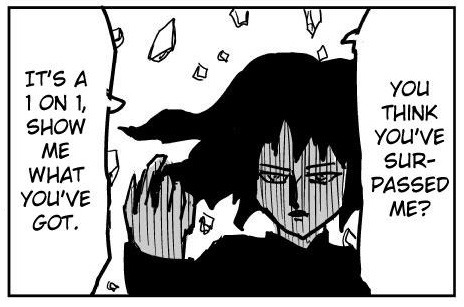
In the battle that follows, Fubuki gives proof of her talent and mastery of her telekinesis through the use of Psychic Whirlwind, a technique that allows her to manipulate the direction of her psychic waves. For anyone else (minus a certain esper) this technique would appear as nothing more than a pointless discovery, a fascinating but ultimately useless and inapplicable invention. Still, the B-Class came up with a use for this finding of hers, in particular in battles against other espers: by disrupting the other telekinesis user’s psychic signals in a swirling maelstrom of her own waves, Fubuki nullifies their attacks (1, 2, 3) allowing her to wait for the most opportune moment to deliver the “finishing” blow. A technique that favors ingenuity over raw output, prudence over recklessness, flexibility and innovation over mere brute strength, truly represents Fubuki’s style, her way of fighting and her personality. In OPM we are used to battles ending in a “stomp” due to the mere power gap between opponents, but here the staggering difference is on the “technique”/skill side of things and Fubuki obtains victory without gaining any power-up or “zenkai” boost of sort over the course of the battle, but solely thanks to her superior telekinesis skills and wits. It is even rarer, especially in this arc, for a character to be assured of their victory, boast about it during the battle, and then win.
On why this clash is fundamental for the arc, structure-wise, suffice it to say that if Psykos wasn’t taken out of the picture and her authority undermined, the heroes would have found themselves facing another Dragon Level Threat, and an esper at that; even worse, a Dragon Level Threat who leads, coordinates and keeps united with lethal effectiveness the other Cadres. In a similar scenario, Psykos, unlike the more short-sighted and less tactically skilled subordinates (ready to backstab each other at the first chance), wouldn’t have allowed Zombieman to restrain Homeless Emperor and would have coordinated the Dragons against what was left of the hero party; furthermore, none of the emerging heroes had what it takes to deal with this formation (Black Sperm, Evil Natural Water, Homeless Emperor and Psykos herself): reaching the surface would have culminated in a blood bath for the heroes. By the way, Tatsumaki was also able to recover and rejoin the fight later solely because Fubuki lured away the enemy capable of dealing with espers (Chapter 73), otherwise, she would have kept her role as the MA leader’s personal stress relief toy for the rest of the battle. The entire arc would have taken a completely different, and plenty more gruesome, direction if it weren’t for Fubuki - obviously, she is not the only deciding factor (that would be flat-out wrong), but undoubtedly one of the major ones.
But what makes this battle interesting is the story of the two espers and how ONE takes advantage of this battle to explore Fubuki’s character. In this regard, perhaps the “boldest” decision made by ONE during Fubuki’s moment of spotlight is to not “sugarcoat” or “whitewash” her personality but to stay true to the character: the duel starts, as we have seen, with Fubuki resorting to an underhanded strike against Psykos, a sneak attack that catches off guard the other esper during the pre-duel conversation, honor and fairness be damned. Truly a classic hero’s move, right? And that’s just the beginning.
During their reunion and the battle that follows, Fubuki never attempts to talk no jutsu Psykos out of her evil schemes with a speech that exposes the inconsistencies of her adversary’s thesis and gives the evildoer a new purpose and a new understanding of life through some kind of life-changing advice. Fubuki’s “argument” against Psykos is, instead, a plain admission of what her true intentions were at the time: she opposed Psykos simply because of egoism. Fubuki reveals that, when the alarmed members of the "Society for the Study Supernatural" approached and informed her, the president of the group, about Psykos’s plans to use the club for exterminating humankind, her real thoughts were at the time: if the weak and ordinary people have all disappeared, how could she (Fubuki) define herself? What makes one strong, if the weak are no more? All Fubuki’s struggles and efforts would have been for nothing if that occurred. By protecting those “inferior” to her, Fubuki preserved a gap that makes her tower over those who, by existing, allow the esper to standout. To Fubuki, reality appears to be made of contrasts and opposites that exist solely to distinguish the extraordinary beings from the masses: those who are special/”witches” from the common “folk”, the strong from the weak, the leader from the subordinates, those at the top and anyone else below. Furthermore, from her perspective, every interaction between individuals is nothing but a fight for supremacy, which inevitably leads to a polarization of roles, dividing the “contestants” into two rigid “groups”: on one hand, those who win or are capable of imposing their will (the “strong”) and, on the other, those who lose/submit/become followers or subordinates (the “weak”); as a result, when they aren’t actively competing one against the other, humans can coexist solely by occupying different spots within a “boss-subordinate relationship” and never on an equal ground - hence her surprise when Saitama and co. proved this false. What matters, then, is not to be on the lower spot of said asymmetrical “relationship”: only by being “strong” a human being can avoid the discrimination and the suffering reserved for the “weak”, which includes not only those who don’t possess enough strength but also those who refuse their powers. In the Childhood Flashback (Chapter 99), a very young Fubuki used her psychic abilities solely for self-defense and didn’t try to fight her classmates, asking them instead to stop harassing her; that only encouraged the bullies to torment her even more. Tatsumaki, on the other hand, “gained” the respect and the fear of Fubuki’s bullies due to her immense powers and her lack of restrictions, which included throwing a kid into space and lifting an entire school full of children - and thus scaring away, from Fubuki, not only the bullies but anyone else too (be it from school or otherwise), effectively isolating Fubuki with the only company of a traumatized and unstable sister. If dialogue is an invitation to further abuses and the unwillingness to use one’s potential against others is perceived as a lack of strength, the only alternative is to learn the language spoken by everyone: violence. Therefore, in this toxic reality, what determines right and wrong, good and bad is the extent of one’s own power and their propensity to use it against others. When we look at the (very few) human interactions Fubuki was exposed to in her life, prior to her introduction arc, these were all regulated by violence or disparity in power, and Fubuki’s sole role model taught and actively encouraged her to employ force against others (which is how Tatsumaki herself deals with any problem), giving an example of how it’s done, as shown in Chapter 99. The kids who called her a “witch” and mistreated her (Chapter 99), her sister who always used her telekinesis as a way to deal with others (Chapter 99), Psykos with her lofty world-domination goals and her method of recruiting/subduing esper groups (Chapter 77) and, later, even the Hero Association itself, where rookie-crushing is commonly practiced and heroes are ranked in a highly competitive environment, where the success of one goes at the expense of another: it’s a life-long confirmation that might makes right. Divergence/differences were all settled on who held more power and any other method of resolving a disagreement was nothing but a display of weakness. Being ruthless against any opposition and being quick to resort to force were always rewarded and encouraged, being cold, distant and aloft were signs of strength; any appreciation and respect from others always came from the power one possessed and the effectiveness of its usage. The shy kid, who avoided employing her telekinesis for offense and asked her bullies to stop instead of attacking them (despite having the power to do so), was only a prey deserving of being picked on and her “fault” was appearing weak and refusing to use her innate talents “correctly”. Fubuki only started gaining respect and admiration from others when she embraced Tatsumaki’s advice and used her telekinesis against others or as a display of power - as we see in high school. Therefore, in the flashback, Fubuki is doing nothing but putting into practice what she learned back then, following the same “reasoning” (retaliating to an incoming threat) and applying the same method of taking care of the problem (force) that the world taught her. Consequently, Fubuki then concluded: “Psykos is my enemy and enemies must be destroyed”. After rationalizing the situation, identifying her vice-president as her enemy and remembering how to deal with threats in the only way she knows, Fubuki confronted an insane Psykos in the club room. The vice president, still in the middle of her delerious rant, tried to find Fubuki’s support against the other members of the club. In the club room, instead, Fubuki proceeded to fight, defeat and seal her powers, leaving Psykos screaming in pain and vowing revenge.
A fitting backstory for an arc where the dichotomy between humans and monsters, heroes and villains, is questioned and explored. However, there is one thing we shouldn’t ignore. Right from the start of the battle, Fubuki employed every trick up her sleeve in order to turn the situation in her favor, and that includes her words. When Psykos took the bait, provoked by the B-Class’s taunts, Fubuki expressed relief at having successfully tricked her adversary. Stating that the reason why she fought Psykos in high school and thus thwarted her plans, with all the consequences the battle held for the latter, who spent years building a new organization and planning revenge after her defeat, wasn’t done for the sake of justice or the innocents, but for an egoistical and almost sociophatic motivation (preserving the “weak”), it’s something Fubuki is clearly saying with the ulterior intent of inciting the other esper into a reckless attack, taking advantage of a memory that still haunts Psykos and fuels her desire for revenge. This isn’t to say that what Fubuki is stating is false or untrue (if Fubuki were lying, it would be such a copout, an utterly lame way to undermine this fantastic sequence): someone who grew up like her is more than likely to have a warped and unordinary way to perceive and relate to people, and her background and past experiences are in line with the reasoning she is providing in her monologue. Fubuki’s philosophy belief system was informed by the criteria that being (or appearing) ruthless and powerful is what a human being should strive for, whereas showing empathy and avoid violence are the marks of the weak, something she should hide and avoid in order to not appear vulnerable to others. Therefore, recontextualizing her actions in this light and taking pride in having adopted an egoistical point of view is not a source of shame for her, because the moral system that the environment she lived in inculcated in her doesn’t register her actions as regrettable but actually encourages and enforces this mentality, persuading Fubuki that coldly crushing opposition is the only way to live, unless she wants to become a victim. Fubuki had no positive role model to look up to, after all, and every single person in Fubuki’s life directly or indirectly taught her that she had to use her powers to stand above others and deal with them with force if they pose a threat. The first (and only) positive model that entered her life, Saitama, only appeared when Fubuki was already an adult, long after the high school incident. Furthermore, Fubuki’s experiences with ordinary people - the “weak” she is referring to in her monologue - consisted of being discriminated and abused for being different (a “witch”) - interesting to note, when she founded the group, Fubuki only gathered espers and not ordinary human beings, perhaps because at the time she still felt the wound left by the discrimination she was subjected to as a kid. If this by itself wasn’t enough, Tatsumaki, the one who effectively raised Fubuki and shaped her mindset, seems to have rather extreme views on this matter, believing that those who possess telekinesis powers are special and inherently superior to ordinary human beings (Chapter 99). No one would grow up normally in such conditions, especially not when every single experience piles up and enforces such toxic ideas with no alternative being ever presented to the character. At the same time, though, this mindset doesn’t entirely define Fubuki as a character, and on several occasions long the course of the series Fubuki has put the well-being of others before her own - putting aside more notable scenes, in the MA arc, during the Rover’s fight, Fubuki appears to be genuinely concerned about the well being of innocents. I personally believe that Fubuki chose to fight Psykos in high school might actually represent the moment Fubuki decided to become a hero later in her life, and that “sparing the weak” is how Fubuki rationalizes her desire to protect others, as warpad and twisted as it sounds. We shouldn’t forget how another crucial aspect of Fubuki’s character is her longing for human contact and how this desire clashes with her education: Tatsumaki despises and vilifies human bonds and Fubuki’s experiences with other people demonstrate that human beings only gather for pragmatical and self-serving reasons, with the rule of the strongest being constantly perpetuated. As a result, Fubuki has to justify and rationalize her need for other people in a way that is also psychologically acceptable for the esper, without making her appear vulnerable, weak. How she accomplishes this? By using as a “template” the only significant example of a relationship Fubuki ever had in her life, the one with her sister; this time, however, Fubuki takes her sister’s role - hence why Fubuki acts as a haughty, “motherly” figure with her subordinates, something we can observe in her speech patterns (for example, she refers to Psykos calling her a “child” and dismisses her accomplishments, and toward her group, Fubuki assumes a similarly scolding and authoritative attitude), just in the same way Tatsumaki does with Fubuki herself (something showcased in the Esper Sisters arc, where Tatsumaki appears to consider Fubuki as her little, immature sister, unable to take care or think for herself). Despite that, however, what at first sight might appear a cold and stern behaviour, in reality, it conceils a more benevolent and less harsh side of the esper. It becomes more clear in certain scenes: like when Fubuki bluntly disbanded the group in the Esper Sisters arc, bringing up their weakness as an excuse; in reality, she was trying to protect them from her sister. Or, later, in Chapter 105, Fubuki’s outward reaction to the group’s devotion and loyalty is to turn away and respond to them coldly, keeping up the boss/subordinate dynamic between her and the subordinates, only for the next panels to reveal that she was hiding her tears of commotion, deeply touched by the words of the group. Or, if we want an example involving people outside her circle and that better showcases Fubuki’s selfless and benevolent side towards others, there is the scene where Fubuki saves Genos from Rover, risking her own life for him, someone who was generally rude and even hurt her, albeit by mistake, during his battle against Sonic; how did she mask this act and how she managed to conceil her inability to perform this feat again? By telling Genos he owed her one favor, despite the fact the debt is never brought up by the character ever again - this scenes shows how Fubuki is a professional hero, who doesn’t hold petty grudges against her colleagues. In all these cases, and in many more situations, Fubuki is always mantaining a safe distance from others, never lowering her guard or admitting any vulnerability to them (which includes showing concerns for them, or even gratitude). When she interacts with others, Fubuki is always influenced by her past, and this baggage of experiences taught her to never show a vulnerable sides, not even in front the people she cares for or is willingly risking her life for. Coincidentally, this trait is also shared by Tatsumaki, who similarly avoids showing any signs of weakness in front of her younger sibling (Chapter 104). Therefore, it’s not far-fetched to say that this habit of costantly rationalizing and justifying the role and value others play in her life also factors in her monologue and explains why she stepped in and “protected” the weak, albeit in such a contorted way - I don’t think this doesn’t negate what I wrote before; rather, it complements it and paints the complex picture of a character who feels like a real person. Nonetheless, the deeper reasons and the positive effect of Fubuki taking actions (at the end of the day, she Fubuki stopped a mass murderer from committing a heinous crime) are not elements the narrative lingers on (and can be better understood only in the light of the next arc), as it focuses much more on Fubuki’s morally gray side, which plays very well into Garou’s saga themes and are representive of the fact that Fubuki is by no means a paragon of all virtues, but a complex and nuanced character.
As for the flashback itself, ONE interwines it inextricably with the battle occurring in the present, as Fubuki and Psykos’s recollection of the old days is shown to us through glimpses, hints and fragments of the past from the point of view of both Fubuki and Psykos.

This apparently innocuous panel perfectly translates visually what Psykos is stating in the balloon text, i.e., the difference in raw power between the two espers, favoring Fubuki at the time, which is symbolized by Fubuki walking far ahead of the vice president of the “Society for the Study of Supernatural”. But it underlines another, more important element: the distance on a human level between the two (but then again, future updates can always add more context to this and disprove anything written here). Fubuki never pays attention to the vicepresident and she doesn’t show any interest in Psykos and what she is saying. Actually, Fubuki never talks to Psykos in the flashback, and the one above, contained in the section from Psykos’s POV, is also the only panel where the two are together and their sole “interaction” in the entirety of the flashback. What this window into Fubuki’s past reveals is a reality inhabited not by close bonds, friends or personal relationships of any kind, but only by followers, underlings and rivals. And as much as Psykos fangirls over Fubuki, throwing praise and rambling about the latter, her admiration for the president appears to come exclusivey from Fubuki’s telekinesis: every time Psykos talks about Fubuki, she is actually only talking about Fubuki’s psychic powers, never about Fubuki herself, as a person - see, for example, the panel above. It is worth adding that Psykos, even in the present, only refers to and addresses Fubuki as “president Fubuki” or simply as “the president” (“会長”), which is Fubuki’s formal title in the Society for the Study of Supernatural, and never by her name alone (not a negligible detail, I think) - it’s the same as the members of the Fubuki group, who always refer to their leader as “Miss Fubuki” and variants, but never in a more direct and informal manner. All this confirms a trend in Fubuki’s life: that power is the sole value a person possesses, strength is what grants respect, recognition, and adoration from others, and hierarchies, titles and ranks serve to underline the gap between human beings. People started showing interest and respect for Fubuki (as in high school) specifically because of her abilities and because, in the case of other telekinesis users like Psykos, Fubuki’s telekinesis eclipsed theirs. Adding fuel to the fire, Psykos began catching up to Fubuki in terms of psychic output around the same time she went insane and threatened humanity (probably, as a result of the Third Eye and whatever contact she might have had with the entity known as God), which surely cemented in Fubuki the perception of others as constant threats, ready to take anything from her at any given moment, especially when the gap in power is reduced - at the same time, we also shouldn’t rule out the possibility that the detail about Psykos’ telekinesis "surpassing Fubuki’s” could be entirely a Psykos' delusion, since it’s something brought up solely by, well, Psykos, who happens to hold a massive inferiority complex toward the president of the club and wants to prove her superiority by taking revenge for her previous defeat.
A couple of words need to be said about the art:

ONE does a terrific job at conveying through his drawings the unsettling and creepy atmosphere surrounding this battle. The panels with Fubuki, never so witch-like, overflow with an eerie and malevolent aura, emphasizing how intimidating she must have appeared to Psykos: like in the panel above, a figure standing on the battlefield enveloped in an ink black dress, seemingly molded out of the solidified darkness of the night, a curtain of shadows and hair strands covering her face save for the void and glowing eyes. The “because I’m an egoist” panel is also very visually striking: an almost monster-like close-up of Fubuki’s face that reflects the unheroic undertone of her speech bubble. ONE’s style, morphing to max out what the single panel is striving to express and characterized by visceral and raw, nervous, lines, perfectly translates on these pages the personal conflict at the center of the sequence. Other choices, like the near absence of other people in Fubuki and Psykos’s flashback, outside of the members of the “Society for the Study of Supernatural”, drawn as indistinct and impersonal silhouettes, and the mysterious shadowy figures of the “Invisible Hand”, drive home a sense of isolation, emptiness and alienation pervading the recollection of these characters’s lives. The lack of dialogue or real human interactions is also further reinforced, in the flashback, by the panels containing only one character at a time - with the exceptions mentioned above, like in the panel where Fubuki is seen walking far away from Psykos, giving her shoulders to us and the vice-president - and empty or human-free backgrounds, which reflect how disconnected these characters are from other human beings, too absorbed in their own cumbersome individuality that they can’t even share, in the panels, the same space with someone else. [EDIT 28/05/2023:] I was re-reading the wc and I noticed how, when a character suffers alienation and estrangement, other human beings are consistently portrayed as vague silhouettes, especially when this happens in flashbacks: aside from Fubuki, it occurs with Genus (Chapter 9) and Garou (Chapter 54: the entire flashback really, but for examples 1 and 2) [end of the EDIT]. Fubuki, surrounded by a white and void background that underlines her estrangement from the rest of the club and the concerns of its members (who lack individual features), is deeply immersed in thoughts far removed from the protests of the shapeless crowd she apparently doesn’t share (not in the same way, at least) and is separated from them, in the only panel they share, even visually. When she is not fangirling about the power evoked by the president’s telekinesis, Psykos rambles on and on obsessively about her delusions of world domination and the recounts of her accomplishments against mysterious esper organizations: there is no actual dialogue with the person she is talking to (Fubuki), but an interminable and uninterrupted monologue that never receives a reply or a response of any kind from the silent interlocutor. The narrative doesn’t shows us the vice president hearing Fubuki’s responses - if there were any - and in general Psykos is portrayed to be paying attention only to herself, babbling about her goals and telekinesis, with Fubuki representing solely a symbol of power to her and not an actual person; as their battle demonstrate, Psykos was so caught up in herself and her schemes that she didn’t even listen to Fubuki’s lesson about flexibility and innovations as a fundamental component of telekinesis improvement, and focused more on simply increasing her telekinesis - which, ironically enough, led to her defeat against Fubuki herself. In general, the way the flashback is presented reveals that there was no dialogue, communication or interactions at all between the two, despite Psykos being the vice president of the club: Psykos was doing her own thing, regardless of Fubuki's actual opinions, while Fubuki herself left Psykos to her own rants and took notice of the vice president only when she directly conflicted with Fubuki’s own interests.
Now, let’s observe how Psykos works as a foil to Fubuki and how the two parallel each other, starting with their appearances.
The black color-themed B-Class Hero versus the Monster Association leader in white.
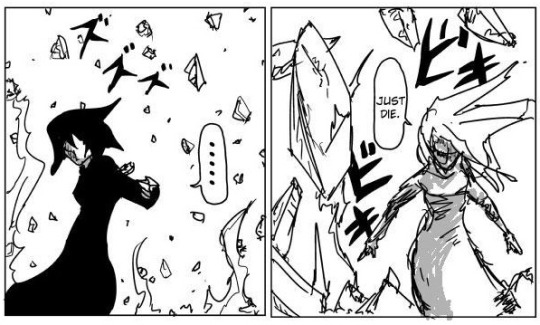
(love how the onomatopoeias highlight the difference in power and demeanor between the two espers: wider, “louder” and more aggresive for Psykos while smaller, “quieter” and less chaotically disposed for Fubuki)
This is no casual choice in an arc staging the most archetypal of battles, “heroes versus monsters”. Since the MA blurs (on the surface) the line between the heroes and the monsters, in this fight that is reflected both from a writing and visual standpoint; for the former it has been discussed above, while for the latter, the white versus black aesthetic of “good vs. evil” is swapped between the hero and the villain. While a white-dressed “villain” facing a “hero” wearing a black outfit surely isn’t a new concept (it really isn’t), here it is applied for the battle between a non-final antagonist and one of the members of the main cast - in Garou versus Saitama, the black and sketchy appearance of the villain fighting a white and plain caped hero reverts to a more traditional iconography. But there is more: the visual appearance of the two espers is also a callback to the chessboard allegory for the Monsters vs. Heroes battles raised by Psykos herself in Chapter 71 (and earlier by Garou in Chapter 54) and therefore here we have the clash between the white queen and her black counterpart. And just like in chess, where white moves first, Psykos appeared on the surface before Fubuki; likewise, by showing up when she did, the B-Class ended up protecting the (literal) King ( “キング”) of the HA, right when the MA Cadres were about to checkmate him.
On the telekinesis side, the two once again differ by adhering to opposite “schools of thought”:
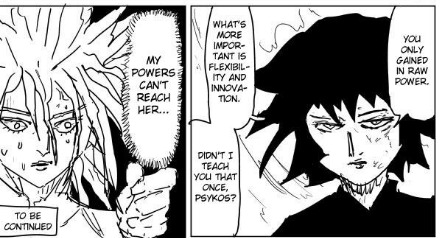
Psykos’s high school obsession for raw power didn’t fade in adulthood, and overwhelming her enemies with direct and brutal displays of sheer psychic output is her go-to way to dispose of them. Psykos’s confidence in victory at the start of her battle against Tatsumaki, for example, hinged on the tremendous psychic powers she posses (which, she believed, were in the “territory of the Gods”); the moment she saw Tatsumaki’s actual might and how far it surpassed her estimates and telekinesis, Psykos lost her cool and started panicking (Chapter 62). That said, Psykos doesn’t exclusively rely on brute force and the webcomic proves how the leader of the Monster Association can use her mind in battle. When Garou blocked her direct attacks and found her weak spot, Psykos resorted to a distraction before instantly squashing the martial artist (Chapter 59: 1 and 2); after the initial shock, Psykos exploited Tatsumaki’s fatal flaw and took down the Hero Association trump card (Chapter 71). Furthermore, as specified several times already, Psykos is a fairly competent leader and the only one capable of leading the other Cadres effectively by coordinating herself with her subordinates. Still, in the years between the high school clash and the battle of Z-City, Psykos mainly focused on increasing her telekinesis more than to refine it, and and the only time Psykos’s technique is praised (or commented on at all) is in regard to the similarities it shares with Fubuki’s - as noticed by Tatsumaki (Chapter 62: 1 and 2). As Fubuki versus Psykos showcases, this has three corollaries: 1) even after all these years and her new immense powers, Psykos was still inferior to Fubuki as far as telekinesis mastery goes; 2) Psykos didn’t (or was unable to) develop her "signature style”; 3) back in high school, Fubuki was already a skilled psychic, capable of teaching others about telekinesis (well, unsurprisingly, after all, the name of the club, “Society for the Study of Supernatural”, already implies this and shows how Fubuki was an experienced telekinesis user even at the time), insomuch that Psykos’s was still very much reminiscent of hers - and Psykos (or the high school club in general) isn’t an isolated case: Fubuki also taught telekinesis techniques to the Fubuki Group (Chapter 99). Lastly, as a testament to the similarities between the two espers’s telekinesis, in the battle against Tatsumaki (1 and 2), Psykos uses a technique that, later in the Esper Sisters arc, will also be employed by Fubuki against her sister (Chapter 100: 1 and 2) - “Hell Cluster”.
In contrast (and for what hasn’t already been said about this topic), Fubuki, while certainly no slouch power-wise (once again from this post), prefers a more refined and sophisticated use of her psychic abilities, as evidenced by her mastery of Psychic Whirlwind. Instead of trying to match the vastness of her sister’s powers, Fubuki researched more into innovative applications of her psychic abilities in an attempt to nullify the gap between her and the older sister. As the battle proves, much to Psykos’s dismay, the MA leader’s stronger output falls short against Fubuki’s Psychic Whirlwind, and the B-Class esper’s unnerving calm adds to her frustration.
From the comparison, it’s evident how Psykos lacked originality and was always dependant from others in order to improve herself (first Fubuki and then the entity Psykos came in contact with), whereas Fubuki honed her skills and became an expert telekinesis user on her own, without anyone else indicating the way. Fubuki’s victory against Psykos is another example of the series proving how struggling and pouring effort into something without taking the easy route will always pay off, while using a shortcut and parassitically piggy-backing on others will backfire in the end.
But let’s keep moving forward.

Even their body language reflects their characters:
lost the smugness along with the glasses (Chapter 74), Psykos is left with uncontainable anger and staggering confusion. Psykos’s gestures are heavy and ungraceful just like the telekinesis she employs against Fubuki: her body bends forward with both arms raised in the sheer effort of keeping up the offensive with her taxing psychic attacks (examples).
On the other side of the ring, the B-Class is totally in control, and her postures range from relaxed to vigilant (these panels, for example), in an esper-like equivalent of a martial arts guard, while also flaunting a cocky and overly confident attitude like in the image above.
And so does the content of their speech bubbles: Psykos erupts in an endless catalogue of insults and death threats, declaring that, while their previous battle in highschool ended with her defeat, things won’t go the same way this time and Fubuki will be the one that will end beaten (actually, “destroyed”). The B-Class responds with taunts and cryptic ultimatums, requesting from the MA leader an immediate surrender, as if the outcome of the battle was already decided; Fubuki shows no outward surprise toward Psykos’s achievements but only contempt and dismissal, as if dealing with the kid Psykos once was, a follower and disciple that never grew up, in spite of all the years that passed - which infuriates Psykos. The temperament they exhibit here is perfectly reflective of their telekinesis’ philosophy and their characters in general.
But what about their respective allegiances and the role they play in them? Additionally, how do these two compare as leaders? First of all, as obvious as it is at this point, Fubuki and Psykos are tied to warring factions that mirror one another, which goes to reinforce the dualistic nature of their confrontation and how Psykos is a narrative foil of Fubuki. Moreover, considering the position the two hold in their respective organizations, it’s clear how the tables have turned since high school: now Psykos is at the helm of an organization she founded, whereas Fubuki is only one of the many “employees” of the association she works for, the top-ranked Hero of Class B and the leader of the Fubuki group sure, but still not one of its higher-ups or key leading figures of the HA. As for their subordinates: for Psykos they are nothing more than assets (she sacrifices the Demons against the S-Class as cannon fodder in order to gauge the invasion force’s strengths and weaknesses before devising the Dragon match-ups) and there is no other relationship between her and the monsters, who are unaware of her real identity (prior to Tatsumaki’s defeat); consequentially, the moment Fubuki undermined Psykos’s leadership, the MA esper was immediately abandoned by her allies, who followed Psykos simply for reasons of opportunism and not out of loyalty; similarly, in high school her genocidal plan met the protests of the members of the club (while she was even more insane than her previous self due to the Third Eye, this goes to show how Psykos was always unable to inspire loyalty in her underlings, who abandoned her at the first disagreement/difficulty). This couldn’t be more different from Fubuki and the members of the Fubuki Group (Chapter 105) (up until now, at least), who actually matter to Fubuki on a personal level beyond her reasons to stay in B-Class, form a faction and the psychological reasurance that comes from a group; even if their relationship is still a hierarchical boss/subordinate dynamic instead of friendship, nonetheless, it is still a healthy and positive bond, as clearly shown in the Esper Sisters arc.
If, instead, we consider what they accomplished for their respective factions, both espers did quite the heavy lifting for their parties. Fubuki and Psykos, in fact, turned the tides from a seemingly unavoidable defeat by taking out the worst asset from the enemy line-up when no one else in their place could have done it. I already talked about the impact Fubuki had on the arc, and when we look at Psykos, her actions achieved the same for her faction: if it weren’t for the esper, the Cadres wouldn’t have defeated Tatsumaki by themselves. By sneak attacking the S-Class psychic, Psykos basically gained the other half of the arc for the Monster Association. Later, when Fang eliminated Fuher Ugly and Gums in a matter of seconds, it was always Psykos who made possible the defeat of the powerful hero (Chapter 72: 1 and 2). Lastly, the one who managed to calm down and convince the Cadres to launch a coordinated attack against King was once again the psychic (Chapter 73 and page one of Chapter 74, already linked before). As we can observe, even in the role they played in the battles, the two espers mirror each other, and without them, their respective factions would have suffered defeat much earlier in the arc.
But Psykos’s nature as a foil doesn’t stop there. While Fubuki chose to stay in B-Class, Psykos, who started as a way weaker follower, became a Dragon Level esper and formed a powerful organization of 17 between Demon and Dragon Level Threats - the reason she became stronger and was later capable of reuniting such force, though, seems to be linked to the Third Eye and God more than to her own merits, and this “blessing” came with rampant madness, but nonetheless, the point still stands. Not yet ready and fully operational, her forces brought the HA’s strike team to its knees. Psykos demonstrates how resourcefulness and determination can lead someone from a humble starting point to impressive results, which provides the perfect contrast to Fubuki, who is stifling her potential and her career under a too cautious and risk-averse mindset. Sure, there are outside factors at play, but the series criticizes Fubuki’s unwillingness to challenge herself, and her character arc (from her introduction up until the Esper Sisters) constantly pushes Fubuki out of her “bubble world”.
Conversely, Psykos represents a cautionary tale for Fubuki, her egoistical ambitions and her obsession for power, if the B-Class were to give in to her worst sides. Even before the Third Eye came into play, in fact, Psykos already intended to “rule the world from the dark” and always sought to acquire more and more power, using the club for her goals, which included submitting other esper groups, in a similar way to how Fubuki’ uses her group in B-Class (well, without the world domination part, obviously). On the subject of world domination, whether or not Fubuki agreed with her is left unanswered, but, by looking at what is shown, it’s unlikely that she did. From what the chapter reveals, it’s only Psykos who keeps bringing up the “world domination” plan and Fubuki never shows any interest in this topic or Psykos’s rants in general - to the almost comical degree that Fubuki seems to ignore Psykos entirely. We know that, in the present, Fubuki is trying to build up an organization that could aid and shield her from her sister, but that’s pretty much it: it would be a massive and baseless stretch to ascribe Psykos’s goals to this, as if Fubuki was following the same plans of the vice president before the latter became insane. In regard to the reason behind the creation of the “Society for the Study of Supernatural”, while it’s mostly up to speculation, I believe that Fubuki founded the club partially because of her terrible, sheltered childhood and complete lack of friends, employing for the first time here the same hierarchical structure and dynamic that we will see later on with the Fubuki group, and, also, as an organization that one day could aid her against her sister (hence why they were studying psychic powers); but again, this is more my headcanon than anything concrete. Considering how things went and how Fubuki grew up from this experience, I would argue that the fiasco and the kind of people that joined the club cemented the negative life views that Fubuki already possessed from childhood, doing additional harm to Fubuki’s already scarred outlook on life. For example, in the flashback it’s mentioned that Fubuki made people join her club simply through talk, whereas Psykos believed that wasn’t enough and that it was better to rely on telekinesis to expand the club’s numbers and submit other psychic groups with force, to the degree of actively hunting them down. It wouldn’t be absurd to conclude that Psykos further confirmed to Fubuki that human beings only interact on the basis of power, violence and hierarchies, gathering around those they consider superior and always aiming to gain more strength at the expense of others. It’s ironic, though, how Fubuki ended up applying this lesson against Psykos herself. Speaking of bad influences, many seem to be under the impression that Fubuki was manipulating and using Psykos in high school. I honestly can’t see this at all. First, because Fubuki doesn’t even interact with Psykos in the flashback - she doesn’t talk to her, much less coerce, exploit or use her in any way - and also because Psykos is shown doing things out of her own volition, while Fubuki has zero interest in her shady activities and appears to have no say in Psykos’ own goals. So no, Psykos doesn’t seem to have been under Fubuki’s influence, much less manipulated by the latter; Psykos was actually following her own personal, questionable goals independently from Fubuki’s will and opinions (which is, admittedly, just like the entire sequence, a great subversion of clichès on ONE’s part). In any case, Psykos’s quest for more power led her to acquire the Third Eye, the ability to peek into the future. But that came with a price. This new ability turned Psykos into a ruthless and bloodthirsty vessel carrying on the will of a mysterious entity beyond her comprehension, which left Psykos, once defeated and unable to realize this obscure mission, a husk of her former self, whom Fubuki, in her attempt at solving this mystery, is trying to recover as of Chapter 134. It’s rather poetic how Psykos, who was a follower driven by her own particular agenda, became nothing but a puppet, a subordinate that could only follow her master’s bidding. Psykos’ search for power and her obsession for it led her to fly too close to the sun, too close to a source of power that consumed her, reducing her to a mere instrument of an obscure design. Her fate is the result of the key differences between Psykos and Fubuki: for all the warped and distorted views she possesses, in fact, Fubuki never forsook humanity, and her self-driven will and ego would have never let her become a servant of someone’s else scheme (for now, at least). This is what truly sets them apart and why Psykos represents a dark mirror to Fubuki with none of the morals to placate an insatiable lust for power (she is called Psykos for a reason, after all).
Since both Fubuki and Psykos play a major role in this arc and their battle represents one of its most significant moments, I believe that a comparison between them and the two most important characters of this saga, Garou and Saitama, is warranted, as it would reveal interesting analogies and correspondences between them, not only by highlighting the similarities between the duos of foils of Saitama and Garou and Fubuki and Psykos, but also between the hero (Fubuki/Saitama) and the monster side (Psykos/Garou), while as well taking into consideration how the esper sideplot mirrors the main storyline and reinforces its overall narrative. Before going into the comparison itself, a little introduction to these two characters, who themselves are one another’s foils and whose dynamic is highlighted throught the entire arc, is needed: down to their very appearances, Saitama and Garou are polar opposites in an archetypical sense, Saitama as the white-caped hero and Garou as a horned dark monster, both inspired by a cartoon they both saw as kids, which led them to become “archenemies” in an iconographical sense, since for one it meant to follow the path of the hero as a serious “hobby” while, for the other, a monster capable of overturning the traditional narrative and re-shape the world; in this pursue, both of them followed an almost, suicidal “training” in order to achieve their dream, but while one was an ordinary young man with no particular skills or abilities, the other was a genius martial arts talent; and while Saitama always stayed true to his childhood dream, Garou compromised his desire for fairness and justice, taking the easy route to “fix” the rotten world by choosing the side of the monster; etc. (Saitama-Garou’s dynamic is a topic in itself and I can’t cover it all here as this post is entirely about Fubuki and it’s alreay long enough that I couldn’t do justice to Saitama and Garou’s characters, nor that would be pertinent with the finality of this analysis). Now, onto the comparison. First of all, the two espers, Fubuki and Psykos, were introduced trying to recruit into their organizations, respectively, Saitama, the protagonist of the series, and Garou, the main character/antagonist of the saga, who, up to that point (and, to be fair, even after that) were forging their personal paths without any sort of affiliation (Saitama works for the HA, sure, but he didn’t pledge allegiance to any of its numerous factions but kept minding his own business). In regard to the circumstances where these characters first met, ONE flips the conventions. On the “hero” side, after the failed recruit attempt, Fubuki fights Saitama over factions and ranking; for the “monsters” it’s the opposite: Psykos sends her subordinates to Garou’s rescue when the Hero Hunter is cornered by the heroes and about to succumb. On the one hand, we have heroes infighting and, on the other, “monsters” providing assistance to each other. The two sides are one the “inverse” of the other, playing and subverting the tropes usually associated with the archetype they represent (”heroes”, “monsters”) and the traditional narrative templates that usually accompany those. As if we were witnessing the events unfold from Garou’s point of view, we observe first the issues of the HA that render its service to humanity imperfect and flawed, proving him right about the shortcomings of the hero system and its members, who seem to not behave like actual heroes but rivals ready to take down the competition, more worried about ranking than anything else, while the cooperative and organized monsters, with their providential intervention, at first seem to live up to Garou’s childhood expectations. Nevertheless, things are destined to change, and, in a way, the roles the “recruiter” and the “target” (Fubuki and Saitama, Psykos and Garou) play in these two dyads are reversed between the two groups in the chapters following their first meeting: Saitama and Psykos represent, in fact, a turning point for Fubuki and Garou’s characters arc. While Saitama plays a more personal and character-charged role in the development of the esper, in the case of Garou, Psykos’ entanglement in the hero hunter story completely changed the course of Garou’s hero hunt, and her meddling - the very existence of the MA, Garou’s rescue, Psykos’ offer to him, Royal Ripper and co’s ambush, the fight between Psykos and Garou that trapped the latter in the depths of the base, etc. - all shaped Garou’s journey, leading, albeit inadvertedly, into the final stage of the MA arc. In this sense, Fubuki and Garou’s involvement in the war between heroes and monsters was determined by having crossed paths with, respectively, Saitama and Psykos, who provided, for a matter of fact, the circumstances under which these characters were present at all during the events of Z-City - Fubuki, who, drawn to Saitama’s group, stayed at the apartment, from where she and the others later joined the battle, while for Garou everything that followed the intervantion of the MA on his side, and, later, the kidnapping of the ugly kid, forced him in the Z-City war. Coincidentally, both Saitama and Psykos reside in Z-City, the epicenter of the conflict: Saitama living alone (prior to Genos) in the unhinabited area of the city; Psykos deep below the sourface and under the monster lair, in a secret chamber unacessible to anyone but her. Interesting enough, both Saitama and Psykos are behind the creation of the two organizations: the HA was created because Saitama saved the butt-chin kid, which inspired his grandparent to come up with and fund the HA, whereas Psykos is the founder and leader of the Monster Association. Despite that, the true identities of both of them are unknown to the members of the respective organizations: one is considered by most an unremarkable troublemaker rookie hero, while the monsters are only aware of Psykos’ coverture, the one-eyed psychic monster, and don’t suspect real her identity as a human being. But let’s go back to comparing the relation between these characters by putting side by side the two dyads of foils (Fubuki and Psykos, Saitama and Garou), which is probably the more narratively meaningful angle from where to look at these foils and the configuration that brings out the most parallels and similarities between them, as well as how these affect the story and play into the underlying themes of the arc. As mentioned before, the espers, as leaders of organizations trying to recruit them, play a similar role in Saitama and Garou’s storylines, which serves to further portray the hero/monster factions (both, as Garou laments in Chapter 76, very disappointingly human) as far distant from the ideal concepts the latters have of these archetypes, thus highlighting the distinct nature of Saitama and Garou themselves in comparison to said factions and their members (the majority of them, at least). And while Saitama has already experienced the flaws of the HA before (and several characters embody these in even more pronounced ways), nevertheless, Fubuki and her recruitment attempt, given its placement in this saga, create a deliberate and direct correspondence between Saitama and Garou’s storylines, as her precedent is soon followed by Psykos’ own introduction and her desire to make the Human Monster join her forces; the similarity grows even stronger when we consider the that fact Fubuki’s story itself ties to Psykos, leading to one of the most important battles of the arc. These encounters end up prompting Saitama and Garou’s criticism for, respectively, Fubuki (for her obsession with ranking, factions, and status) and Psykos’ monster association (which is completely alien to Garou’s notion of monsterhood, as later remarked in the aforementioned Chapter 76) - Saitama and Garou are also not amused by their telekinesis too (but to be fair, in Saitama’s case, this is a recurring gag he has with any psychic user he comes across). The parallel between them is further reinforced by both the “rookie” hero and the wannabe monster finding themselves standing against their colleagues’ opinions, when said colleagues will push them into committing a murder: the ultimatum the monsters set for Garou, in order to prove his monsterhood, consisted of killing the ugly kid after the Human Monster didn’t murder 100 people as per their first request and failed to take down a passerby hero (who happened to be Saitama) (Chapter 56); Saitama is pressured by the majority of the still stand majority of the heroes into delivering the final blow on Garou (Chapter 94). Linking these two moments there is, once again, the presence of the espers, who express the views of their respective factions: Psykos, after Royal Ripper and Bug God took down Garou and left with the hostage, orders to “dispose” of the ugly kid without thinking twice about it (Chapter 57), while Fubuki advocates (like the other heroes) for the elimination of the Human Monster (Chapter 94). Against this unfairess, both Saitama and Garou do not sacrifice their integrity by abiding to the decisions taken by the majority. Instead of going against their personal beliefs and moral system, they keep carving their path on their own accord, even when it means being the only voice of reason or fighting against overwhelming odds. Interesting enough, this careless attitude is antithetical to Fubuki and Psykos’ spirits; the espers avoid reckless actions, relying instead on groups (though, in Fubuki’s case, has a particular reason) and only picking battle they could win (or think, they could win) - Fubuki’s character arc hinges in part on the character is confronting this, when it becomes a limit and prevents her potential. By the way: in regard to Fubuki, what I stated above refers mainly to her introduction arc and how she is presented in it, and less about her as a whole, though certain elements still apply. In regard to the confrontations, for what concerns one of the leitmotifs of the saga, namely “skill” versus “raw strength”, Fubuki versus Psykos is the opposite of Saitama versus Garou: in the esper showdown, “the good-aligned” character wins thanks to wits and superior technique against the “power-oriented build" of her opponent; in the final battle, instead, the absolute power of the caped hero prevails effortlessly against the martial arts of the “monster” prodigy. No matter the plans they devise, the power-ups they gain, their determination and their previous astonishing accomplishments, whether it is pure brute force or refined techniques, in the end the villains are destined to lose ”unfairly” against their designated “heroic” counterparts in the decisive duel between them; this predetermined outcome rhymes with the “the hero always wins and the monster always loses” motif that permeates the whole saga (evoked in Garou’s monologue, mentioned at the beginning of this post). After overcoming the biggest hurdles on their path (the S-Class) and right when their victory was at hand, the unexpected and out of nowhere appearance of their “nemesis” (coincidentally, two B-Class heroes) denies Psykos and Garou the chance of achieving success. Over the course of their respective battles, both the leader of the Monster Association and the Human Monster slowly realized this: Psykos, as her telekinesis is repelled by Fubuki, starts to fear that her battle against her former president will have the same outcome as the previous one in high school; Garou steadily recognizes he is battling an hero embodying the world’s “unfairness” against whom his martial arts, fighting prowess and power-ups all fall short, unable to overcome that very outcome he always strived to subvert and that now seems to await him too, as a “monster” that can’t escape his fate (Chapter 88; Chapter 91; Chapter 92). Both Psykos and Garou are defeated not by traditional heroes, champions of morality and paradigms of virtues, but subversions of those: an egoist driven by warped world views and a jaded man who became a hero just for “hobby”. [Updated 11/03/2024: I was unsatisfied with the previous conclusion of the present paragraph, so I decided to completely rewrite it and hopefully clarify my original point] The fact that this sideplot and the two espers, considered either individually or in relation to one another, parallel and mirror Garou and Saitama’s story beats is not a random choice. Dichotomis, dualisms, and contrasts are all heavily featured in the arc (human/heroes vs monsters, individual vs society, strength vs technique, the dualistic visual motive of black and white present in both the esper and the final battle as noted earlier, etc.), with foils and mirrors being one of the many ways those concepts are manifested along the course of the story. This is a precise writing decision that reflects the irresolved identity of the protagonist of the arc, Garou, a young man who wanted to change the world and eliminate unfairness but, feeling unable to do so as a "hero", compromised and decided to become its opposite, a “monster”. His inner turmoil and his spirit torn between these two "roles" reverberate throughout the saga and its plot and characters, assuming a concrete shape, plot-wise, in the form of two battling organizations (the Hero Association and the Monster Association) that are a manifestation of the archetypes Garou's perceives in perpetual opposition between one another, heroes and monsters. Therefore, the entire arc lives and thrives on the conflict spawned by these apparently irreconciliable opposites, before the cathartic resolution of the arc overcomes this opposition and brings new-found unity to Garou, with the reveal that Garou wanted to be a hero all along and chose the path of the monster because that was the role that was assigned to him by society; but it's in the following pages that we reach the most important passage of the finale: after Saitama asked the martial artist what he will decide to do now that his dreams of achieving world peace and eliminating unfairness as a monster failed, it's the sudden appearance of the ugly kid, who showcases his gratitude to Garou and tries to protect him from the heroes, what gives Garou a new purpose and will to live, now finally free to decide who he will be, this time with no interference or external pressure confining his aspirations into a predetermined "role".
Before moving on, there are a few other topics I want to address:
starting with how Fubuki and Psykos’s story intersect with Garou’s. The backstory of the two espers resembles in a way Garou’s summation of the unfortunate villain’s tale (Chapter 46), since it follows its plot and features all the parts required for the play to be represented: Psykos, the hated “Villain/Monster” opposed by the “Majority” (the members of the “Society for the Study of Supernatural”) and defeated by the intervention of the “Hero”, Fubuki, who stands in defense of the current social landscape. And no matter how she tried to surpass Fubuki after the high school fiasco, in the events of the MA arc Psykos still loses again, beaten by an “egoistical” subversion of a hero supported by society - which is all very reminiscent of 1, 2 (Chapter 46). But this story doesn’t stop at simply mirroring Garou’s monologue because it directly connects to the Human Monster plotline. In fact, as the recollection ends and the clash between the espers concludes, with Psykos falling on the ground and Fubuki looking from the distance and questioning Psykos about what made her change, the one who emerges from the night is none other than Garou. The Hero Hunter’s reappearance at the end of the battle couldn’t be more fitting since Fubuki victory over Psykos follows, once again and like in high school, beat for beat the narrative scheme of “the hero fighting the monster/villain” loathed by Garou. No other scenario would have provided a better setup for Garou’s return other than this specific battle. While his kid self powerlessly observed the “tragedy of the monster/villain” occurring on screen countless times (Chapter 46, pages linked above), now, from over the rocks and behind a new frightening appearance, he similarly stares over the conclusion of the esper battle - another iteration of the hero and villain’s tale - before intervening (Chapter 77), facing the hero. Garou is obviously not “vindicating” Psykos, but his return following Fubuki’s victory, seems to almost break, meta-narratively, the “curse” of the “villain/monster” losing unfairly to the heinous “hero” (re-evoked in the psychic battle), since his arrival renders (apparently) meaningless all the victories and the efforts Fubuki and the other heroes obtained against all odds and through immense struggles up until that point, as a new, unstoppable threat emerges from the shadows of the night the same moment the leader of the Monster Association was finally defeated. This reappearance also underscores how far Garou’s progression as a character has come: if in his first appearance Garou declared his resolve to become “the strongest monster ever”, with this entrance, the Hero Hunter has seemingly reached (or at least is on the verge of achieving) that goal, the “Disaster Level God” (”Absolute Evil”), the being capable of changing the status quo. For these reasons, it’s quite symbolic that Garou, in his new “transformation”, is standing above two associations (embodied by Fubuki and Psykos) that mirror each other as two faces of the same coin (see what I wrote about Fubuki and Psykos’ appearances and what purpose this serves as a storytelling device), which also echoes Garou’s rumination from Chapter 76 (1, 2 and 3). Furthermore, this scene perfectly bridges the first half of the arc, the hero versus monster battles, which culminate with Psykos’ defeat, into its conclusive phase, where Garou takes center stage and emerges as the ultimate threat to the two battling organizations. There is another common detail between the espers and Garou, which is to say the setting of their flashbacks: school, also recurring in the other Fubuki’s flashback featured in Chapter 99. In school or its immediate surroundings, those three characters all experienced a crucial event (or, for at least two of them, Fubuki and Garou, the culmination of a process ONE decided to encapsulate into specific turning points) that will affect the rest of their lives, leaving traces and prompting reactions that constitute the basis of their characterization in the present of the series: Fubuki’s pivotal childhood flashback took place near school and involved her classmates (and her sister); Psykos’s first clash with Fubuki occurred in high school; the experiences with his classmates and the school personnel (Chapter 54), mixed and overlapping with the television cartoon villains he rooted for as a kid, led Garou to his current crusade against mob mentality. Far from being mere scenography, in every one of these sequences, “school” is framed as a microcosm that already exhibits forms of inequality and discrimination that plague society as a whole (like herd mentality), marginalizing and oppressing those who do not conform with the popular opinion of the majority (or are, simply, “different”). Despite their formative function, schools fail in OPM at their pivotal purpose of preparing the new generations for the roles they will take in society, and the school personnel, as well as parents and adults in general, are either absent, like in Fubuki and Psykos’s flashback(s), or actively enforce and promote injustices, as in the case of Garou.
Considering how Psykos refers to Tatsumaki as Fubuki’s arch nemesis and the fact Tatsumaki “connects” Psykos to Fubuki solely for the similarities between their telekinesis (and not because she has any recollection of Psykos herself), it wouldn’t surprise me if the club was a secret thing Tatsumaki wasn’t aware of; this is actually 100% consistent with what is stated in the Esper Sisters arc. When we remember how taken aback Psykos was by Tatsumaki during their clash, as if she had never witnessed her powers before and had only a vague knowledge about the older Witch Sister’s capabilities, it is fair to say the two hadn’t ever met before Chapter 62. Moreover, Tatsumaki never “recognizes” Psykos: the connection Tatsumaki draws between Fubuki and Psykos is strictly based on their telekinesis; taking into account the Esper Sisters arc (where Tatsumaki keeps referring to Psykos as a monster) and how Tatsumaki never refers to Psykos as a Fubuki’s acquaintance from highschool she remembers, it’s safe to assume that she didn’t know Psykos at all and wasn’t aware of her existence or Fubuki’s highschool club in general; if she actually knew Psykos, then the story would have conveyed this information much more clearly and directly (through dialogue, or by showing Tatsumaki looming somewhere in the flashback or in another manner), instead of outright omitting to mention something of this importance - and that because Tatsumaki didn’t know Psykos before the Z-City incident. As for “Fubuki’s friend” (“友達”) (Chapter 62) that is how Tatsumaki always addresses people orbiting around and/or seemingly having a (even remote) connection to Fubuki (panels from Chapters 101 and 102). Besides, during the flashback, we only see Fubuki in a school environment or wearing a school uniform, never in other scenarios; she isn’t present when Psykos recruits and submits other espers groups, which is strange given how Fubuki always leads her subordinates and likes to assert herself as the leader/strongest - at the same time, Fubuki never expresses any interest on the world domination stuff and the other esper groups, so there is that as well. In the panel I posted before (followed by my thoughts on that topic), the only one with Fubuki and Psykos together, both of them have a school bag and are wearing a school uniform, indicating once again that the only place where they interacted, and where Fubuki interacted with other people in general (which is to say the other members of the club), was school and its immediate surroundings, and nowhere else - another subtle proof of Fubuki’s isolation and sheltered existence, all things the Esper Sisters arc delves into and explicitely addresses. The part of the flashback that shows the activities of the club is also entirely from Psykos’ POV, not Fubuki’s, who is basically absent for the majority of it. From this, I can infer a couple of things: it’s as if something, or better yet, someone, was restricting Fubuki’s freedom and preventing her from having any contact with the rest of the world outside of school hours; at the same time, this could be another evidence that submitting other esper groups was Psykos’s exclusive interest that Fubuki did not share; or, better yet, a combination of both. The only time (that we are aware of) the Fubuki Group acted on their own (fighting and defeating a rampaging monster classified Tiger Level Threat, if not above) without being led by their leader occurred in Chapter 134, when Fubuki was too busy trying to contact Psykos telepathically. So, I wouldn’t be surprised if Tatsumaki only allowed Fubuki to attend lessons and school activities, while, for the remaining time, she was under strict surveillance.
So these are Fubuki’s accomplishments in this arc. But not everything goes well for the esper.
After all, the Monster Association is the ultimate reality check for the Hero Association and the majority of the cast. Considering how this arc is filled with thematic comeuppances and poetic matchups with characters being subjected to the “rule of contrapasso” and suffering instant karma as a result of their mistakes, what has been specifically reserved for Fubuki?
For starters, Fubuki, who prefers to avoid unnecessary risks and is unwilling to throw herself unprepared into a situation, is catapulted with little to no infosmations and without plans into a war between the top heroes and a group of Dragon Level Threats - and the heroes are losing the battle. Despite all her efforts to play it safe, a chain of unforeseeable circumstances pushed her out of her comfort zone at the epicenter of a disaster. This is incredibly ironic in itself.
Furthermore, in the battle against Psykos, we also learn that the technique Fubuki mastered through hard training, Psychic Whirlwind, was already perfected by Tatsumaki. Outside of a typical example of ONE’s humor, this clarification by the narrator will have dramatic repercussions in the next arc, when the two sisters will collide. It also ties to the theme of unfairness: despite Fubuki’s efforts, hardship and ingenuity, her sister was capable of achieving the same result solely thanks to her natural-born psychic potential.
[EDIT: 11/12/2023] I now realize that I didn’t include perhaps the most important consequence of this fight: well, time to correct this mistake. Once the esper battle ends with Psykos being defeated and laying on the ground, Fubuki comments that Psykos was never a strong “child” (she was a weaker esper than Fubuki, after all), and that something must have changed the vicepresident in order for her to acquire vastly more powerful telekinetic powers, with the side effect of twisting and corrupting her mind even more than it already was. Fubuki then wonders if that was the result of the Third Eye, the power Psykos obtained before coming up with the plan of wiping out humanity. It’s at this point that Fubuki realizes that Psykos’s plan in high school wasn’t dictated by her own agenda, nor was it another case of Psykos’ personal brand of crazy (like world domination), but the result of something sinister and external, something that threatens humanity as a whole. What was an episode from Fubuki’s teenage years she promptly dealt with and then forgot about, with the only consequence of cementing an already disastrous outlook on life, is now re-entering her life in the form of an unsettling mystery heralding the apocalypse. From this moment on, Fubuki priorities change: her previous concerns, including the source of her traumas, Tatsumaki, all pale in comparison to what this discovery represents. And while Fubuki, as a hero, feels responsible for Psykos’ current state and wants to help her, Psykos is also the key to deciphering this mistery, and so, learning more about the future Psykos saw and the entity that looms over mankind will be one of Fubuki’s main drives in the upcoming chapters, like in the Esper Sisters arc (Chapter 99: 1, 2, 3) and in the following events (Chapter 134).
The lowest point for Fubuki during the arc, though, is represented by Garou: by crossing paths with the self-proclaimed human monster (1, 2, 3, 4, 5 and 6), Fubuki finds herself in the predicament Saitama foreshadowed back in Chapter 48.
This sequence isn’t the umpteenth instance of a character being used for a meaningless gag, but a turning point for the story and Fubuki herself. After all, it marks the return of the saga’s main character after we left him alone over the rubble of what once was Z-City, questioning his humanity the moment his body seemingly started failing him for all the accumulated injuries of his previous battles. Garou’s triumphal reappearance requires, therefore, its due pathos to set the tone for what has to come, reestablishing the main character/antagonist of the arc as the ultimate barrier in front of the heroes in a way that conveys the tonal shift this development carries. Consequently, ONE dials up the “horror” factor by drawing Garou’s exterior as a distorted demon-like figure standing menacingly in front of the tired and caught off guard esper (1 and 2). His new terrifying appearance perfectly embodies Fubuki’s fear of overwhelming power that leaves no possibility of victory or success to those who try oppose it. Any hope to win, any chance at overcoming this new threat vanish in the face of the strength beyond reason he possess and the threating aura that he radiates, as he reminds to Fubuki how her struggles and efforts were all for nothing. As I mentioned in one of the previous paragraphs, his appearance seems to nullify Fubuki’s success, to render pointless and meaningless everything she achieved moments after the tides were turned - as we know, Garou didn’t take away from Fubuki’s contribution of the arc, but, narratively, his role in the final phase of the arc seems to throw into despair what the heroes conquered through their battles, representing an invincible final boss no one can defeat.
The Hero Hunter, in fact, makes his entrance right in the moment of her victory against the leader of the Monster Associations and overwhelms any preparation, connection, power and technique Fubuki could have ever employed against him. If the encounter with Saitama gave Fubuki a taste of the unsustainability of her short-sighted mindset, Garou completely shatters the illusion of fulfillment and protection her bubble world gave her. Remaining in an environment with no bigger fish than her, dodging dangerous situations, creating a group and securing the highest spot she could in the HA’s hero score - it was nothing more than administering a palliative instead of treating her real issues, and Garou, as the overwhelming “monster” Saitama predicted, exposes that as such: all Fubuki’s attempts at escaping her own demons crumble against the Human Monster and Fubuki is left with profound despair.
For several chapters we are left wondering what actually happened to Fubuki and Garou even claims to have killed her in Chapter 83. Solely as Garou viciously beats the last S-Class, we find the B-Class profoundly shocked, delivering (to King) the answer to what Garou previously asked her (Chapter 84: ”What do you see?”): “Fear”.
But Fubuki did actually try to fight Garou. As already stated above, not even a few moments after taking down a Dragon Level Threat, Fubuki was suddenly confronted by the appearance of a new formidable opponent. Left with no other option than to defend herself, Fubuki attacked the demonic silhouette with Hellstorm (1 and 2). By that point, though, very few heroes (or monsters, for what it matters) could face Garou head-on, let alone defeat him, and so the Hero Hunter easily deflected Hellstorm’s rock-barrage with martial arts powered up by his newly acquired “lighter” and stronger body.
As for what “fear” actually means to Fubuki and where the roots of it come from, we have to look at her fight with Tatsumaki in the next arc. Against her older sibling, the same sensation Fubuki felt in front of the Hero Hunter resurfaces once again, filling Fubuki with despair (Chapter 100). It’s the fear of having to battle an overwhelming power that, no matter all her efforts and her struggles, squashes her chances of success and leaves her at the mercy of her adversary. The fear of being powerless in a world where power and strength are the only languages universally understood, what determines right and wrong and the fate of an individual. The hopeless sensation of being forever the “weak”.
In Fubuki’s encounter with Garou there is also a nod (or should it be called a foretaste?) to Fubuki’s childhood flashback from the next arc: as her trauma kicks in, Fubuki instinctively assumes the same “defensive” position her young self took against her bullies as shown in the Flashback from Chapter 99; it’s noticeably distinct from the fetal-like posture of Darkshine, demoralized and trapped underground, or from any other character reduced to a distressed or depressed state during the arc, and seems it was drawn like that on purpose for character-related reasons. Be it intentional or not, it’s a great detail, especially because while the panel seems to convey, at first glance, everything required of it in the context of the sequence, it acquires a deeper meaning in the light of a flashback contained in the next story arc, retroactively adding an ulterior and more personal layer to Fubuki’s reaction here.
As much as the esper is affected deeply by what she just experienced, however, Fubuki doesn’t turn into a damsel in distress or comic relief. ONE doesn’t ridicule her with misplaced gags nor does he downplay her fear for cheap laughs, but uses this sequence (and, to be honest, nearly every panel involving the character) to advance and progress her story and flesh out her characterization. Beside, nobody saves Fubuki, uplifts her morale, or helps her overcome that cloud of terror. King, who found her and stayed with the psychic up until the end of the arc, didn’t bring the B-Class out of that state, because Fubuki will have to do that by herself in the Esper Sisters arc, where the B-Class, confronted by the same feeling of hopelessness and fear, will have to fight back the very source of her traumas, Tatsumaki. Here we have the other purpose this fight fullfills, beside realizing Saitama’s prediction: the encounter with Garou serves as a meter of comparison for a similar, hopeless situations Fubuki will find herself in the next arc, this time, during a much more personal confrontation, where, instead of reasignation and despair, Fubuki will find the courage to stand against an immensely powerful threat. Thanks to the precedent of Chapter 78, the growth she underwent and the way she will face bravely a similar, desperate situation become all the more powerful and impactful than they already are.
Worth mentioning is that the actual threats of the MA arc, in the sense of those aiming to kill the heroes and the kid, aka the Cadres, never reduced Fubuki into a damsel in distress: only Garou represented for her a “death” scenario, if Garou wasn’t, well, Garou, but, in that case, the same would apply to every other character in the arc not named Saitama. By the way, the “fear” sparked by Garou didn’t stop Fubuki from proving her usefulness even at the very end of the saga: in the last chapter of the arc, although still shocked by the Human Monster, Fubuki lifted the builders trapping Fang, freeing the martial artist from the imprisonment Psykos and Homeless Emperor confined him to.
Always in Chapter 94, we find out that Fubuki, alongside King and the few conscious S-Class heroes, witnessed Saitama single-handedly defeat the Human Monster who almost took down the HA. The same hero who “foresaw” the scenario Fubuki found herself in was also the one who put an end to Garou’s rampage. With his victory against the “Devil” (Chapter 94), Saitama proves to Fubuki and to several other characters as well that he is not simply “very strong” but one of those incredible beings that defy any common sense. This development will have major consequences in the setting and in the following arcs. With the end of the battle and Garou’s disappearance, the Monster Association arc finally comes to a close.
So, when we look at the bigger picture, what does Fubuki gain at the end of the Monster Association? Not a promotion, not a power-up, not an improvement in her relationships with her colleagues - nothing. Instead, Fubuki has to carry the burden represented by Psykos and the consequent sense of responsibility for her state, the looming mystery of what Psykos saw in her vision (the “Source of Madness”), and, as aforementioned, the realization of Saitama’s “prophecy” in Garou. Despite her impressive achievements for the HA, Fubuki’s participation in the battles didn’t improve her condition; if anything, it worsened it. Defeating Psykos leads Fubuki right to the worst-case scenario she could think of: a direct clash with Tatsumaki. The Esper Sisters’s arc is kickstarted specifically by that battle.
Aftermath.

We reunite with Fubuki a few days after the conclusion of the MA arc (Chapter 96), as she heads to what we will soon discover is the HA’s prison, where Psykos is imprisoned. Her mission is desperate: learn about the vision of the future and, eventually, rescue Psykos, the only person who posseses any clue about this impending dread, from Tatsumaki, who intends to execute the MA leader on the spot. It’s a race against time and the chances of success are minimal.
Fubuki’s arrival at the HA’s parking lot (Chapter 98) is a clear callback to her introduction arc, with Fubuki in a reversed role: she is the one who, unintentionally, interrupts a fight between Saitama and a co-ranker, much like Genos and Sonic put a stop to her “fight” with Saitama when the latter was still a B-Class. On this occasion, bumping into Saitama is not her objective but a lucky coincidence that will assist her down the line. It all goes to show how much things have changed for the character since her first appearance and how different Fubuki’s goals are now. If the MA arc threw Fubuki into danger without warning or preparation, the Esper Sisterts’s arc has Fubuki taking action not for egoistical reasons and within the restricted mindframe of her own benefits, as she did in her series debut, but for the sake of Psykos’ current status, her human connections and humanity’s future. Fubuki’s priorities and concerns are no longer the foolish obsession with her own status, the power dynamics of B-Class and the petty competition for ranking, but the quest to learn more about the impending doom that threatens humanity as a whole and the selfless (and thus heroic) volition of rescuing Psykos, who becomes the embodiment of the responsibility Fubuki will have to take care of as a leader and a hero; a burden that will get even heavier later when the Fubuki group as well will become the target of Tatsumaki’s wrath. For their sake, Fubuki will have to take a stand against none other than her sister.
But let’s see what happens next.
Having run into Saitama, Fubuki manages to convince him to follow her, and the two enter the structure. This leads to one of my favorite Fubuki moments, her “dialogue” with Saitama in the elevator:

Just to be clear, not for pairings and stuff, but exclusively for what this represents for Fubuki and her story. I do not ship any character in this series (nothing wrong with shipping though) and I’m not implying any kind of romantic undertone in what follows.
Up until this point, Fubuki kept her “leader” act on like she usually does (Chapter 98). On this page, though, the same Fubuki who in her series debut antagonized Saitama and went even as far as to rookie-crush him in an attempt at preventing this new hero from surpassing her is now praising that very person, who now as an A-Class outranks her (the very thing Fubuki originally wanted to avoid), for being strong - which, on these terms, is a massive compliment and form of acknowledgement coming from Fubuki. The same Fubuki, who tries to appear strong in front of others and conceals her weaknesses and limits, is now telling Saitama that, after having fought Garou herself and then witnessed their battle, she recognizes the newly promoted A-Class as one of the individuals who stands above the rest, and, even more significant, Fubuki adds that she can say that despite having renounced doing it herself (“reaching the top”).
For Fubuki, lowering her “denfenses” and opening up to another person is extremely rare, if not unique. Serious situations (like the Hero’s raid against the Monster Association) or unexpected turns of events (like Garou) can temporarily wear off the aura she tries to cover herself with, but these are extreme scenarios with outside factors at play beyond her control. As soon as she can, Fubuki immediately reverts to her usual persona. In downtime and without direct external pressure, it is even more unlikely for the psychic to be genuine and sincere toward someone else when the preferable option of her façade is on the table, shielding and protecting her from exposing too much and coming across as “weak”. Previously in the series, every time Fubuki admitted a limit or complimented someone else, she did it only reluctantly, when in difficult situations (e.g., the Overgrown Rover’s fight) and/or discussing someone who was not present; she never did so of her own volition or in a scenario that didn’t necessarily require it.
For this reason, Chapter 98 is a significant development. Sure, the threat of Tatsumaki looms menacingly over Fubuki, but the situation hasn’t gone south yet, and by bumping into Saitama, Fubuki has found an unexpected source of help that evens the odds, if only by a little (from the “in-universe” perspective of the character). Furthermore, with Saitama already accompanying Fubuki, her words here can’t be interpreted as flattering with an ulterior motive. On the contrary, what Fubuki is doing here is a sincere and outward manifestation of respect for Saitama and what he achieved, while, at the same time, an open admission of her “weakness” to someone who has surpassed her, be it in rank or sheer power. The events of Z-City - meeting Saitama and his circle, the HA-MA war, the pivotal battle with Psykos, the “Source of Madness” and the fear awakened by Garou - made her realize that her concerns about being “number one” and her attempts at achieving a sense of illusory accomplishment were nothing more than an immature delusion in a world devastated by frightening monsters and villains, especially after learning of a threat looming on the horizon, and realizing that Saitama’s words, from when they first met, were indeed true. Hadn’t all of that occurred in the way it did, this page wouldn’t have contained such a poignant showcase of growth for the character that wraps up a plot thread that began back in Fubuki’s introduction arc.
And this is only the start of the Esper Sisters’s arc. What lies beyond is another crucial chapter of Fubuki’s story, representing the culmination of her process of growth and maturation up until this point in the story.
#fubuki#jigoku no fubuki#wc fubuki#webcomic fubuki#fubuki opm#one punch man fubuki#hellish blizzard#blizzard of hell#content: character analysis#it took way more than anticipated but it's finally done
4 notes
·
View notes
Text

just bare-bones of another idea that popped into my head at like 2 in the morning again. i love the actor au and here’s fubuki getting ready before shooting scenes for the day. also if anyone knows any good opm actor au fanfics lmk bc my brain needs more of them rn🗿
#one punch man#opm fanart#opm#fubuki#fubuki opm#one punch man fubuki#actor au#grwm#sketch#au idea#au art#hellish blizzard#blizzard of hell#behind the scenes
11 notes
·
View notes
Text
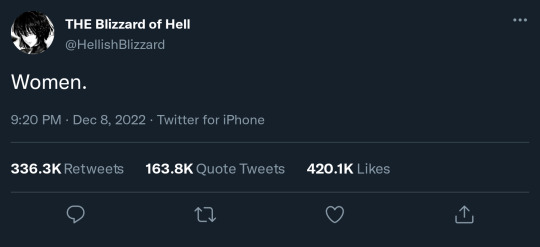
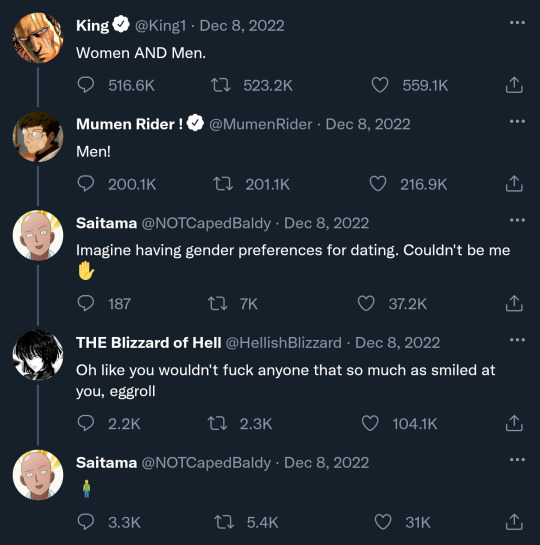
#double posting today cuz i was inspired#Genos is looking at the reply chain intently but silently#one punch man fake twitter#one punch man twitter#opm fake twitter#opm twitter#fake tweets#fake twitter#one punch man#opm#saitama#Fubuki#opm king#one punch man king#opm mumen rider#mumen rider#opm fubuki#hellish blizzard#blizzard of hell#one punch man fubuki
217 notes
·
View notes
Text
One punch man has to be one of the best manga out right now. It’s amazing. Spoilers
I cried so hard when genos came back to life dude I drank 3 bottles of water in less than a minute
#genos one punch man#one punch man#one punch man saitama#one punch man fubuki#one punch man garou#one punch man tatsumaki
5 notes
·
View notes
Text

「Fubuki ( フブキ )」 by AbP_Art | Twitter
๑ Permission to reprint was given by the artist ✔.
#one punch man#opm#ワンパンマン#fubuki#back#big#swimsuit#fan art#artist:abp#pixiv art#mypost#mypost:one punch man
1K notes
·
View notes
Text
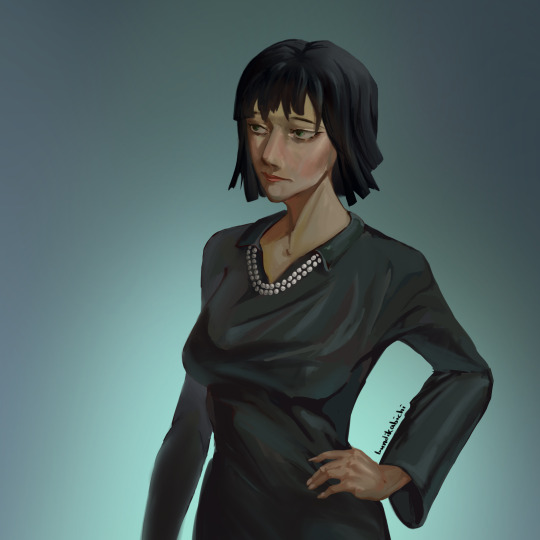
6 notes
·
View notes
Text


Who is your fave Bunny Psychic Sister? by Kajin-man @kajinman_art
747 notes
·
View notes